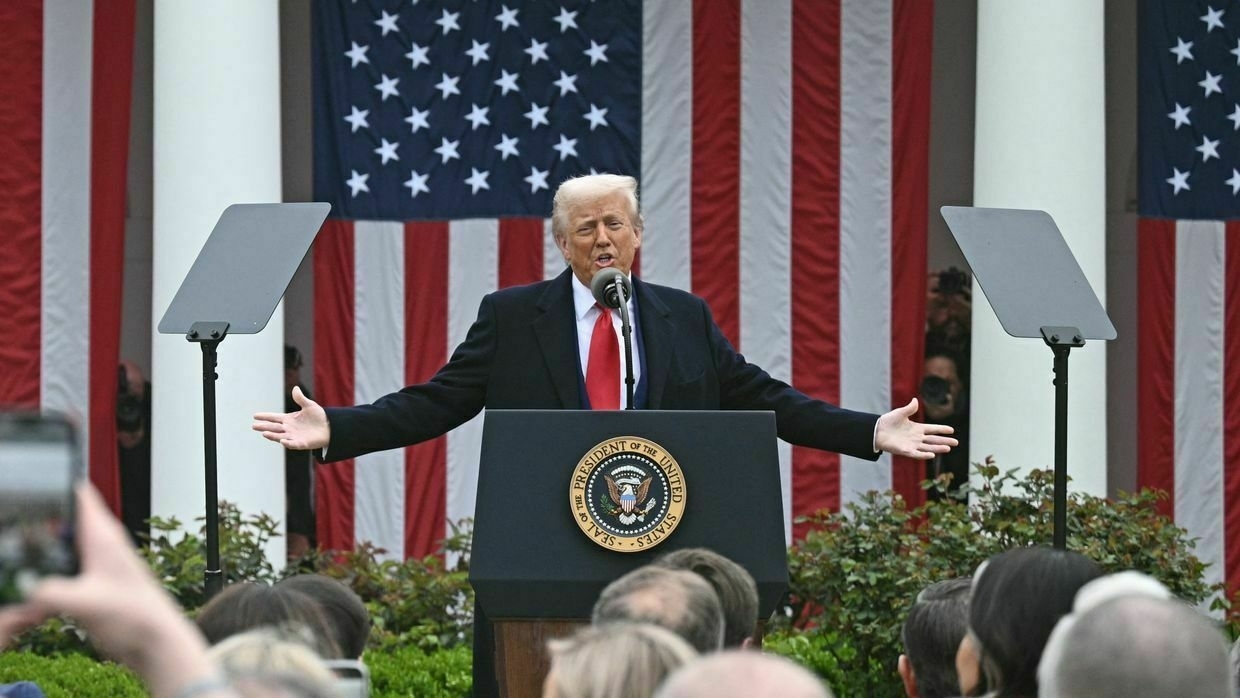-
Minerals deal disrupted by those with 'their hand in the till,' US official claims
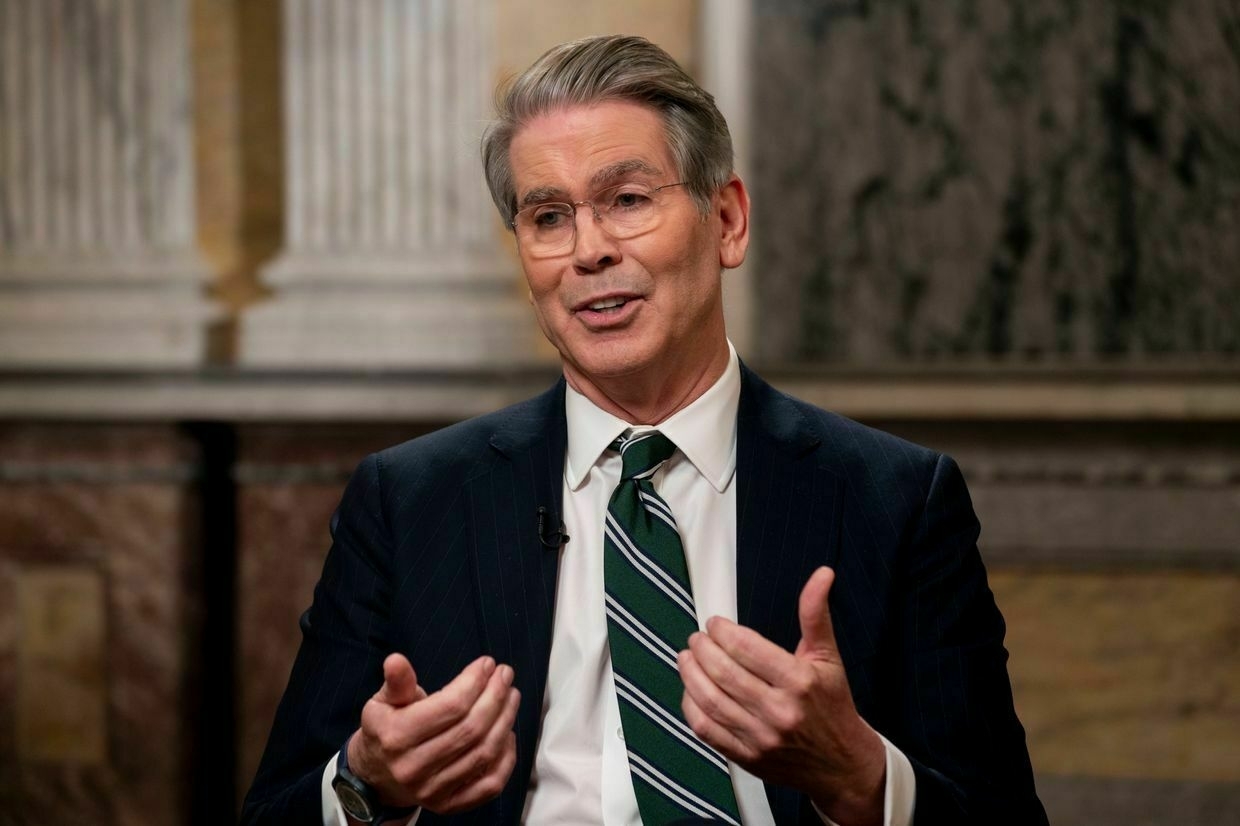
The minerals deal between Ukraine and the U.S. is a “win-win,” but has been thrown off by Ukrainian leadership, U.S. Treasury Secretary Scott Bessent claimed in an interview released on April 4 with U.S. far-right political commentator Tucker Carlson.
“It’s a genuine economic partnership… we don’t make any money unless they make money, and you know who doesn’t like that? People with their hand in the till,” Bessent claimed.
"(T)he Russians didn’t like the look of this deal because they thought it was actually something durable for the U.S. people and the Ukrainian people," he added.
Bessent said on April 2 that a Ukrainian delegation would arrive in the U.S. in the coming days to work on the mineral agreement. The deal was previously set to be signed on February 28 with a visit by President Volodymyr Zelensky to the White House.
“We’re expecting a Ukrainian technical team (at the) beginning of next week, and I’m hopeful we can get this thing signed and go back to a win-win situation,” Bessent said, confirming his earlier remarks.
U.S. President Donald Trump wanted to use the deal as a signal that the U.S. stands with Ukraine as an economic partner, Bessent said, adding that it would incentivize Russia to negotiate an end to its war against Ukraine.
“The sequencing has been thrown off, but I think we can fix it,” Bessent said, referring to the steps the U.S. plans to take in establishing a peace plan.
Bessent said the deal will bring the U.S. and Ukraine “closer together,” prove the U.S. is not abandoning Ukraine, and show the American people the U.S. has an economic stake in Ukraine.
"Ukraine…because of various kleptocracy aspects, has been held back. So hopefully with U.S. assistance and President Trump engineering this peace deal, Ukrainian people can have a better future," Bessent claimed.
Throughout his interview with Carlson, Bessent repeatedly claimed that the deal would benefit the U.S. and Ukraine.
“Ukraine succeeds, we succeed, and it could be a long-term partnership,” Bessent said.
“If this deal works (the aid the U.S. has provided to Ukraine) could end up being small change,” he said.
Bessent claimed Zelensky said he would sign the minerals deal at the February Munich Security Conference, but never did.
Bessent visited Zelensky in Kyiv on Feb. 12, where a deal was never signed.
“I thought it was important to take the agreement to Kyiv and present it to President Zelensky,” Bessent said.
Bessent criticized Zelensky and his inner circle for failing to sign the minerals deal on several occasions.
“He got to the Oval Office and blew up what should have been the easiest thing to do in the world,” he said.
Zelensky “assumed a high-handed tone” with U.S. officials, Carlson claimed in his interview with Bessent.
“He (Zelensky) is not getting the best advice… His advisors are not perfect,” Bessent said.
Ukrainian and U.S. officials have met in Saudi Arabia several times, where Ukraine has agreed to a full 30-day ceasefire. Russia has not.
Inside Ukraine’s desperate race to train more soldiersNew recruit Vitalii Yalovyi knew one thing after completing the Ukrainian military’s boot camp: He was not prepared for war. The 37-year-old felt physically unfit, forcing him to miss some courses during the month-long training. His leg was still hurting from long daily walks at a training center i…The Kyiv IndependentAsami Terajima
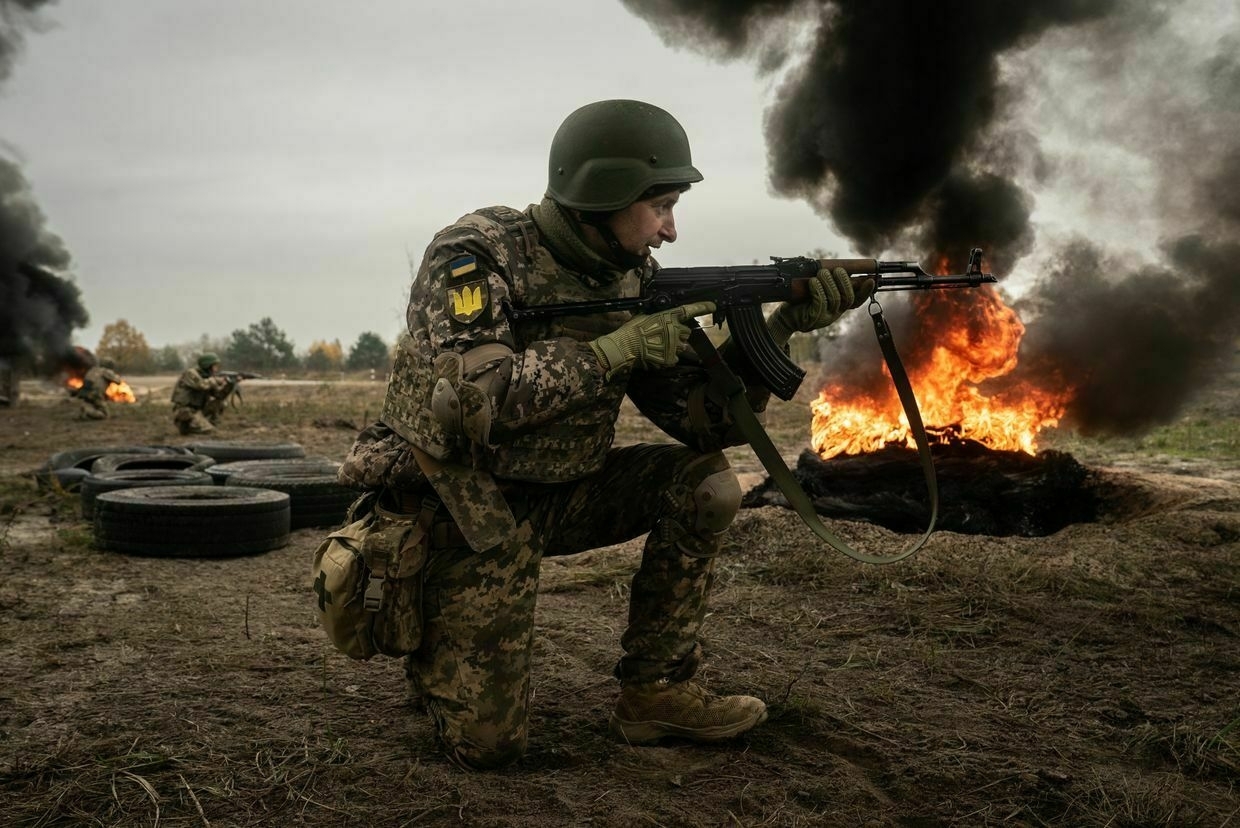
-
#HandsOff2025 Live www.youtube.com/live/ZB2D…
-
Zelensky welcomes French, British army chiefs in Kyiv, talks troop deployment
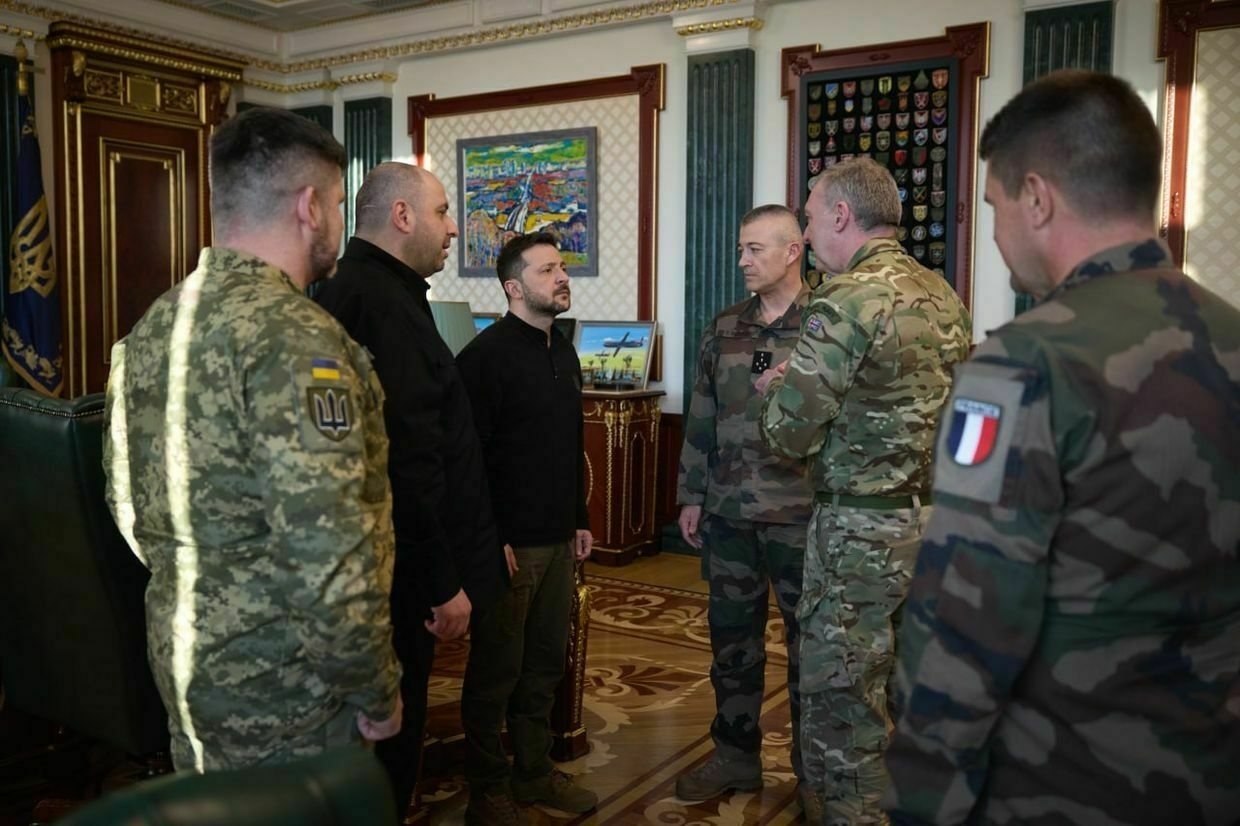
President Volodymyr Zelensky had met on April 5 with British Admiral Antony Radakin and French General Thierry Burkhard who head the Defence Staff of their respective countries.
“There is tangible progress and initial details on how the partner security contingent might be deployed,” Zelensky said.
Zelensky also thanked the “U.K. and France for their leadership” in bringing together countries that would be open to deploying troops to Ukraine to monitor a potential ceasefire.
On March 27, French President Emmanuel Macron hosted a summit in Paris where a number of European countries moved forward with plans to send soldiers to Ukraine as part of a “reassurance force” in case of a ceasefire with Russia.
In mid-March, U.K. Prime Minister Keir Starmer presented plans to send 10,000 peacekeeping troops to Ukraine, which is significantly smaller than the 30,000 troops he reportedly pitched to U.S. President Donald Trump during their White House meeting on Feb. 20.
Though Starmer still publicly held out for a coalition deployment to be supported by a U.S. “backstop,” Macron said that it could take place “with or without” Washington’s involvement.
Russian attack on Kryvyi Rih kills 19 people, including 9 children, injures 68Russia’s missile attack on the Ukrainian city of Kryvyi Rih on April 4 killed 19 people, including nine children, according to local authorities. Sixty-eight people were reportedly injured.The Kyiv IndependentThe Kyiv Independent news desk
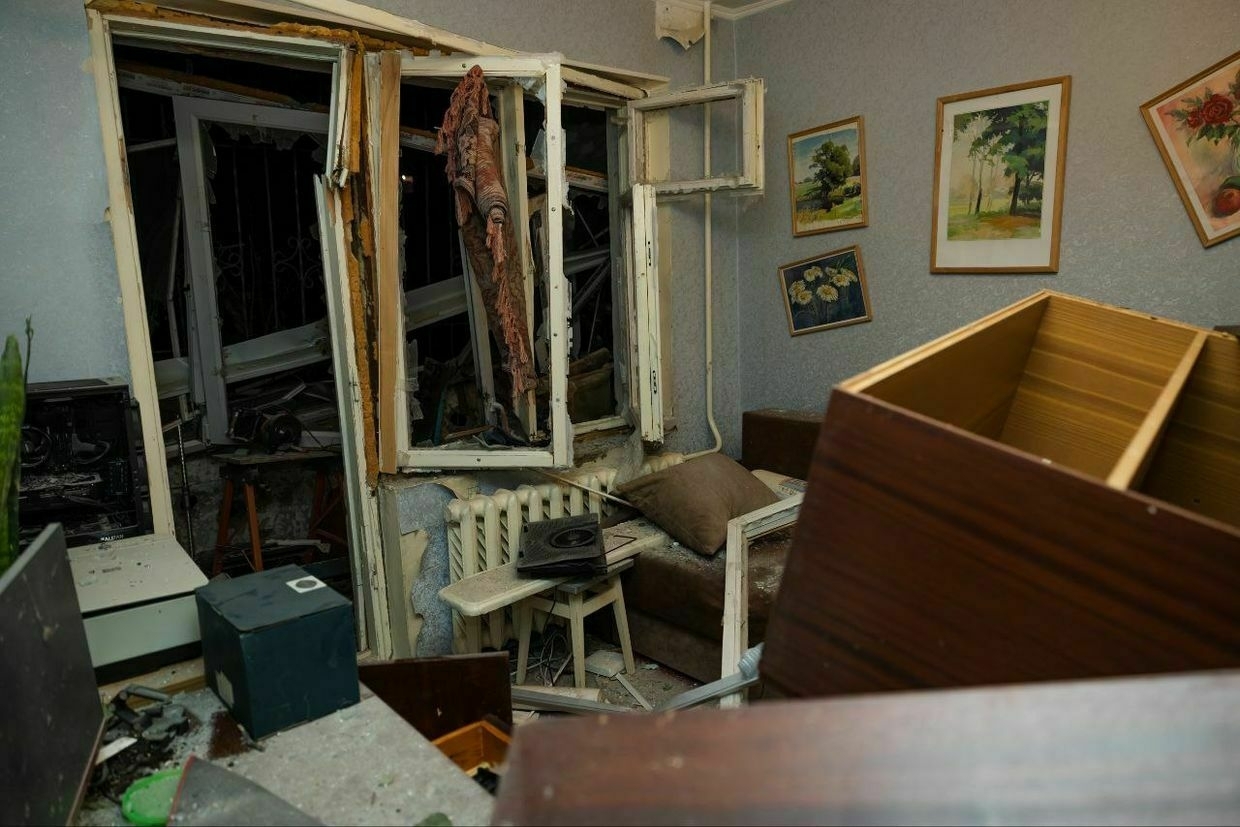
-
Putin’s Ceasefire Delay: Will Trump Outlast Putin’s Games?
-
Ukraine investigating leaked U.S. minerals deal, FT reports

Ukraine is reportedly investigating the source of a leaked draft of the minerals deal with the U.S.
The administration of Ukrainian President Volodymyr Zelensky has directed the security services to find the leakers, the Financial Times reports.
The measures include use of polygraph tests on those with access to the deal across several government ministries, though the Financial Times did not identify them specifically.
The minerals deal is the pet project of U.S. President Donald Trump, who talks about it as a means of securing U.S. engagement with Ukraine via private industry investment. Opponents talk about it as colonial pillaging of Ukraine’s resources.
The actual details of the minerals deal seem to fluctuate regularly, but Ukrainian authorities including Zelensky have ascented in general terms to the concept of U.S. miners coming into Ukraine.
An earlier version of the deal did, however, fall apart early in March. Negotiations are, however, very much ongoing. Trump however recently accused Zelensky of “trying to back out” of the minerals deal.
-
"Russia owes an answer to the US" — West pushes Putin on ceasefire deal
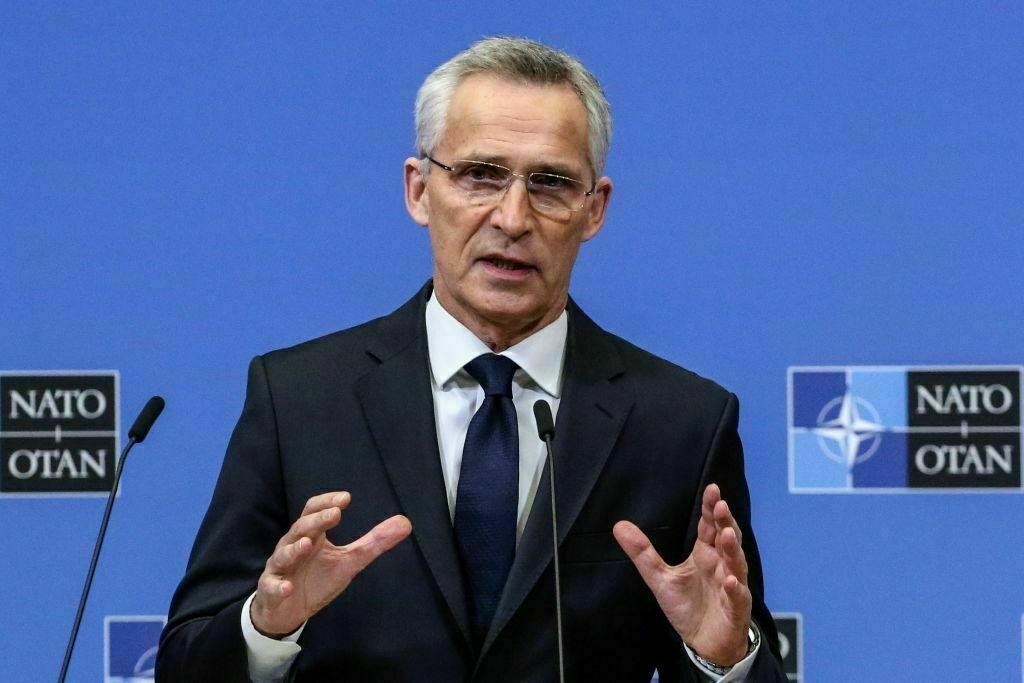
After convening in Brussels on April 3 and 4, NATO’s representatives are demanding an immediate response from Russian President Vladimir Putin to a ceasefire deal that the U.S. and Ukraine have already agreed to.
“Today, Russia owes an answer to the U.S.,” said French Foreign Minister Jean-Noel Barrot, per Bloomberg. “It has to be yes, it has to be no — it has to be a quick answer.”
“The ball clearly is in the court of the Russians,” NATO Secretary General Mark Rutte told CBS' Face the Nation. “They are not moving fast enough, is my impression, including the impression I’m getting from my American interlocutors, that Russia really has to do more to bring this war to an end. The Ukrainians are really close to the American position.”
U.S. Secretary of State Marco Rubio said after the NATO convention, “the message is, the United States needs to know whether you’re serious or not about peace. Ultimately, Putin will have to make that decision."
The Kremlin’s lead negotiator, Kirill Dmitriev, recently teased “significant progress” on the ceasefire deal. Delegations from the U.S. and Ukraine originally hashed out a general ceasefire agreement early in March, but the Kremlin has dug its heels in.
Putin’s lack of cooperation and continued attacks, both aerial and political, on Ukraine and its president, Volodymyr Zelensky, have increasingly angered U.S. President Donald Trump in the past two weeks.
Russian attack on Kryvyi Rih kills 19 people, including 9 children, injures 68Russia’s missile attack on the Ukrainian city of Kryvyi Rih on April 4 killed 19 people, including nine children, according to local authorities. Sixty-eight people were reportedly injured.The Kyiv IndependentThe Kyiv Independent news desk
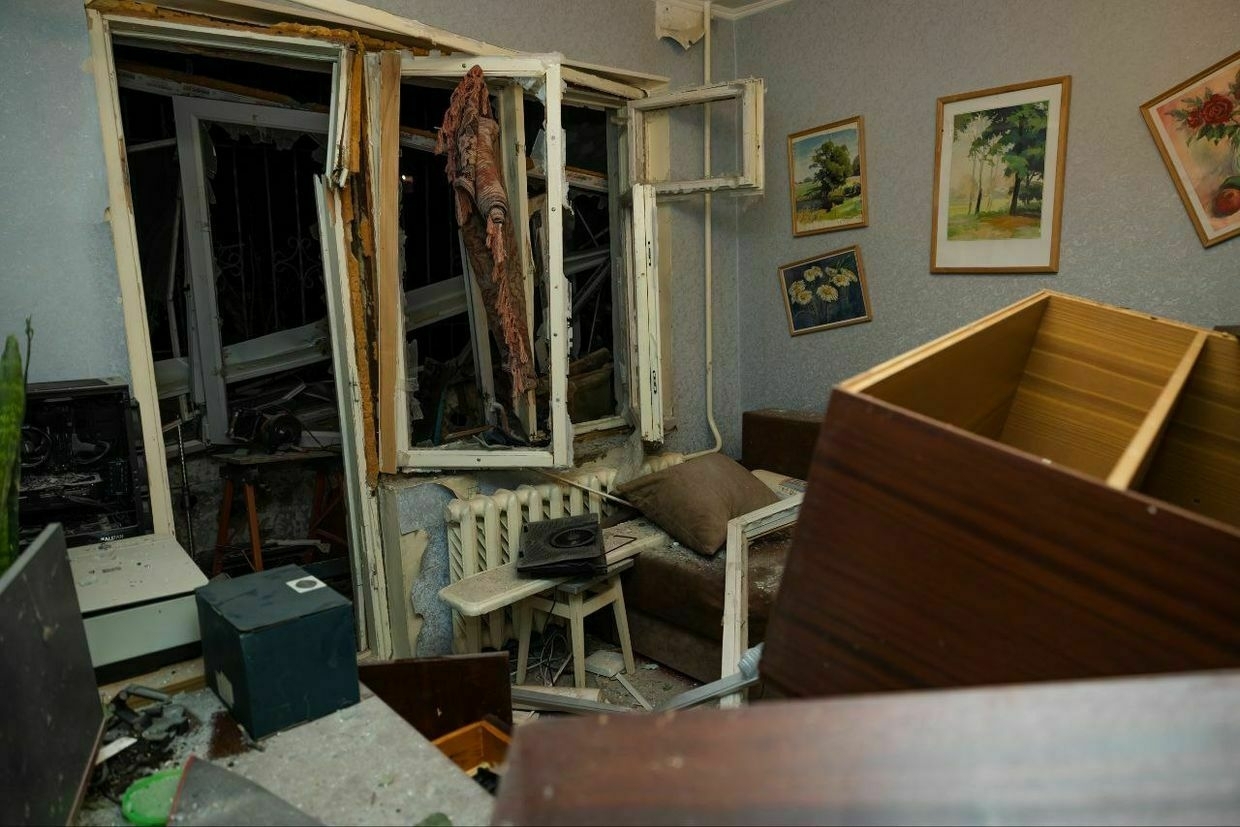
-
Kremlin negotiator travels beyond just US to push for release of frozen Russian assets, Zelensky says
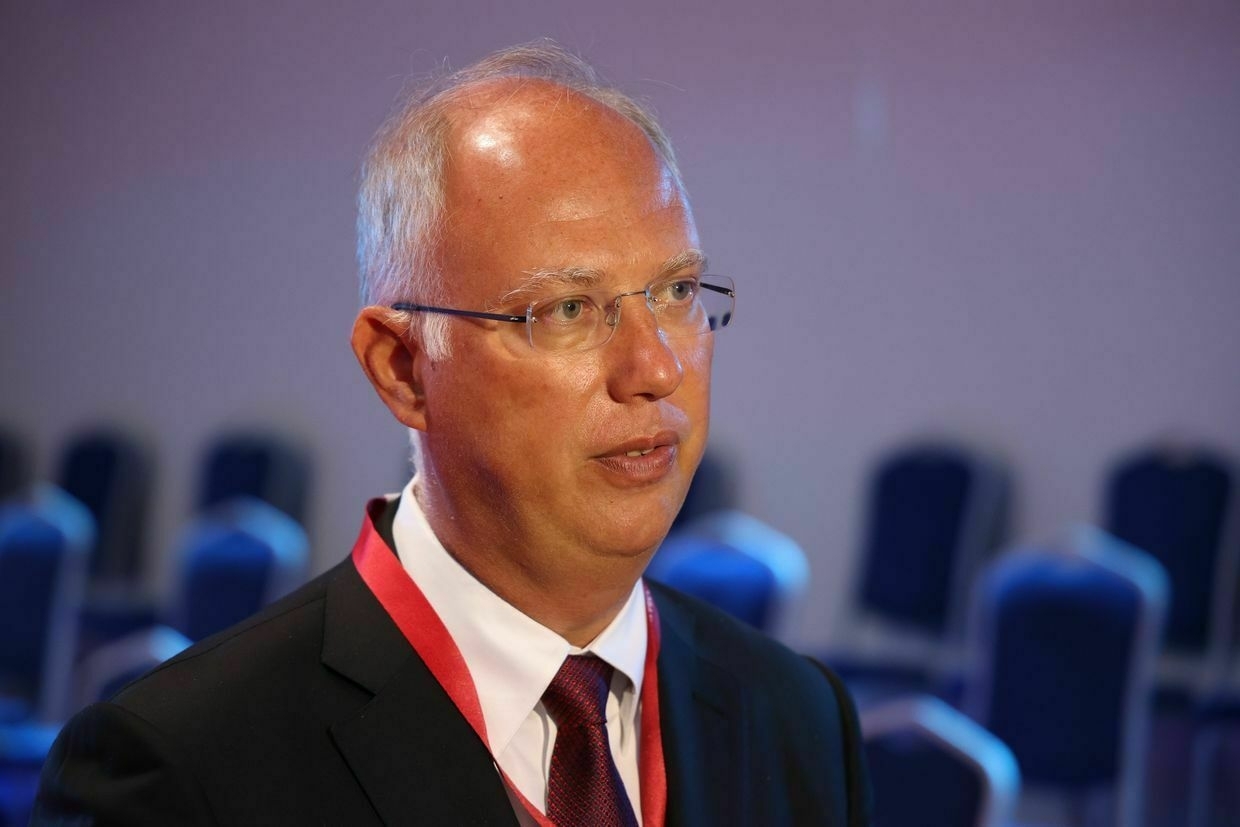
Kremlin negotiator Kirill Dmitriev has been visiting not only the United States but several other countries in an effort to unlock frozen Russian assets, President Volodymyr Zelensky said at a briefing on April 4.
Since 2022, G7 nations have frozen roughly 300 billion euro ($310 billion) in Russian central bank assets, with the majority—around 190 billion euro ($200 billion) —held in Belgium’s Euroclear.
“He (Dmitriev) was not only in the U.S.—we are monitoring the movements of our adversaries,” Zelensky said during the briefing.
Dmitriev, who heads the state-controlled Russian Direct Investment Fund, met with U.S. officials in Washington on behalf of Russian President Vladimir Putin on April 2 and 3.
He played a role in backchannel diplomacy between Moscow and Trump when he was first elected in 2016.
According to Zelensky, Moscow is pressuring foreign governments to help release the funds by offering deals involving high-tech goods such as aircraft construction.
Zelensky also noted that Russia is actively trying to have sanctions lifted, but as of now both Europe and the U.S. remain firm in their stance of continuing to impose them.
The EU has already begun leveraging proceeds from frozen Russian assets to support Ukraine. In January, Ukraine received 3 billion euros ($3.09 billion) as part of the EU’s Ukraine Facility, funded through interest earned on the frozen reserves.
Who is Kirill Dmitriev, Putin’s Trump-whispererKirill Dmitriev, head of Russia’s sovereign wealth fund, has become a key figure in the Kremlin’s outreach to the Trump administration. Russian President Vladimir Putin appointed the 49-year-old Kyiv native as special envoy for economic affairs in an attempt to interest Washington in joint economic…The Kyiv IndependentMartin Fornusek
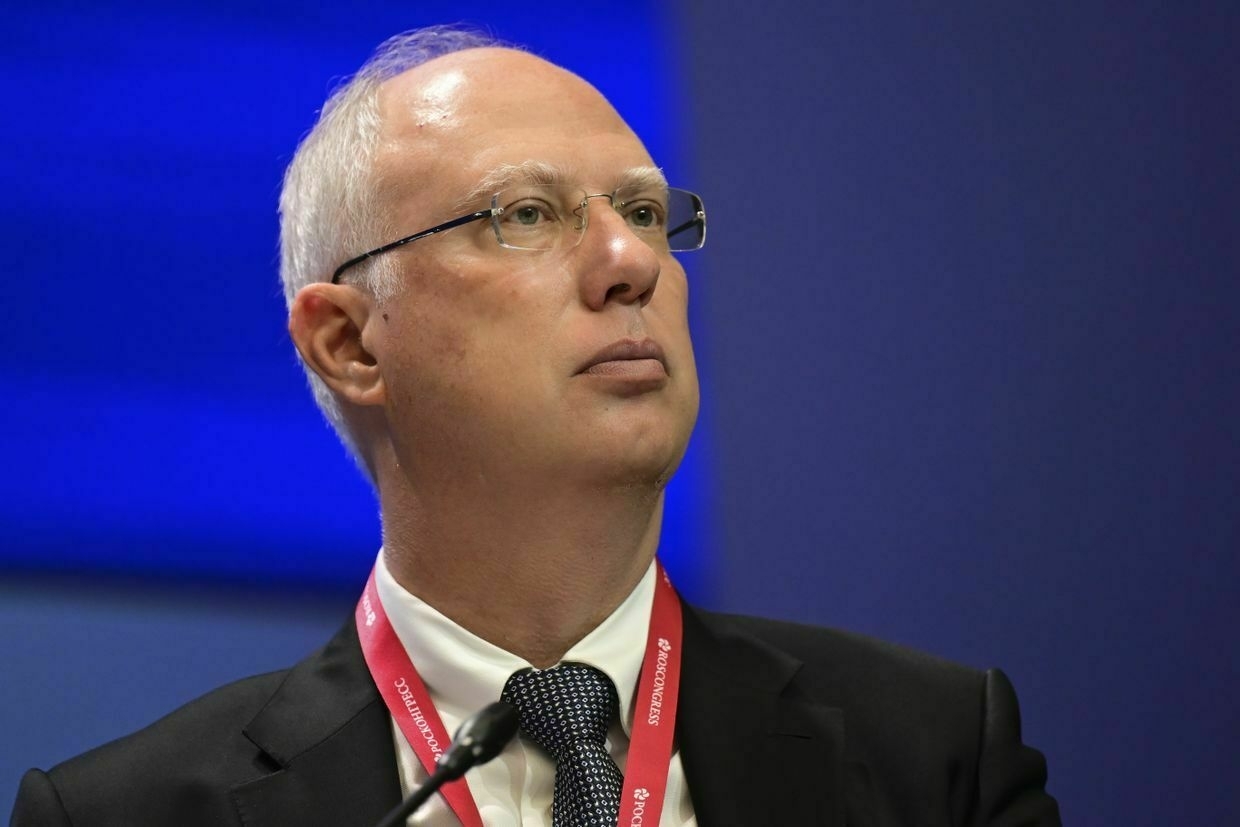
-
Trump admin mistakenly informs Ukrainian refugees they must leave US immediately, CBS reports
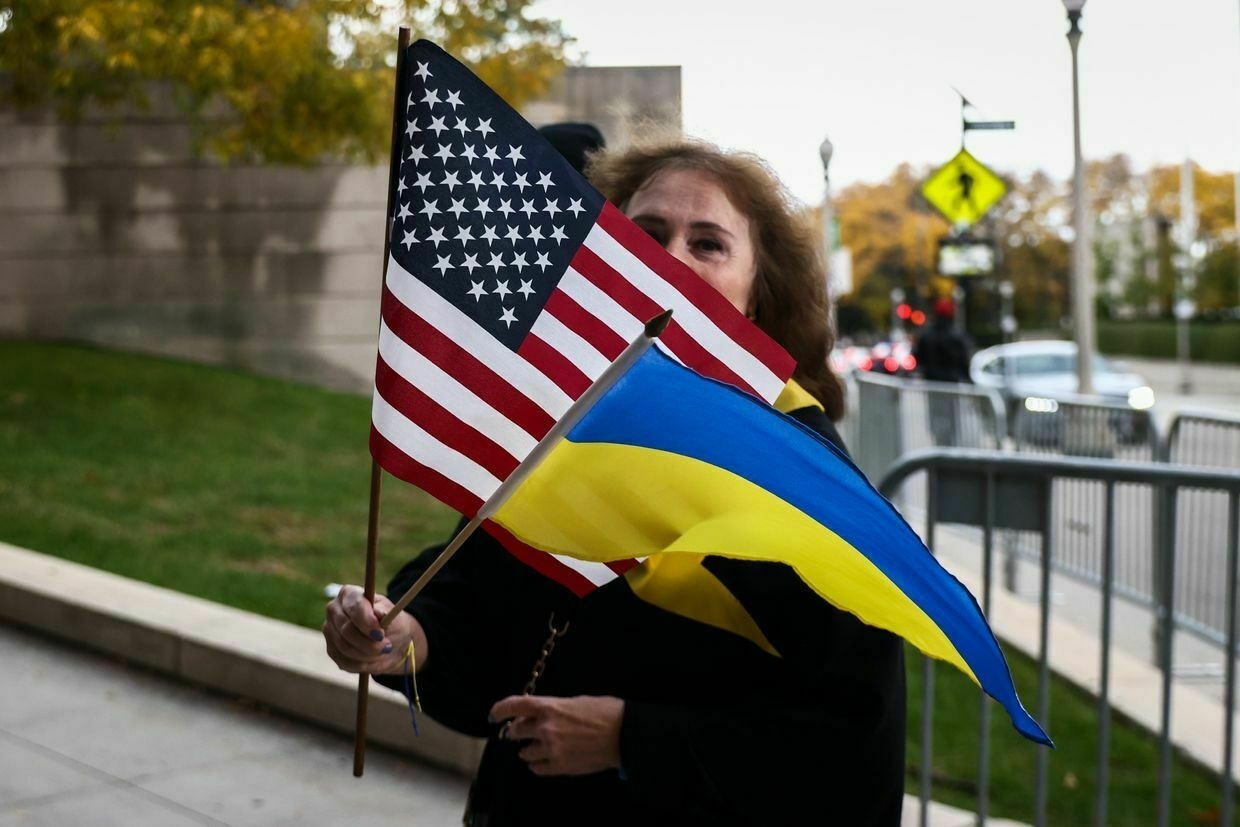
The Trump administration acknowledged on April 4 that it had mistakenly informed some Ukrainian refugees their legal status in the U.S. was being revoked and that they needed to leave immediately, CBS News reported.
The Department of Homeland Security (DHS) clarified to the media outlet that the emails sent to the refugees were an error, following confusion around the legal protections granted to Ukrainians under the Biden administration.
Earlier this week, several Ukrainians who entered the U.S. after Russia’s full-scale invasion of their homeland received emails saying that their legal status would be terminated.
The notice, dated April 3, informed recipients that DHS was “exercising its discretion to terminate your parole,” a temporary legal status granted by the Biden administration to those displaced by the war. The letter warned that unless the parole expired sooner, it would end seven days from the date of the notice.
Publishing house of Harvard’s Ukrainian Research Institute latest target of Trump’s federal budget cutsThe future of Harvard’s Ukrainian Research Institute (HURI) publishing program is in jeopardy, as it has become the latest target of sweeping grant cuts under the administration of U.S. President Donald Trump. The National Endowment for the Humanities (NEH), an independent U.S. federal agency, info…The Kyiv IndependentKate Tsurkan
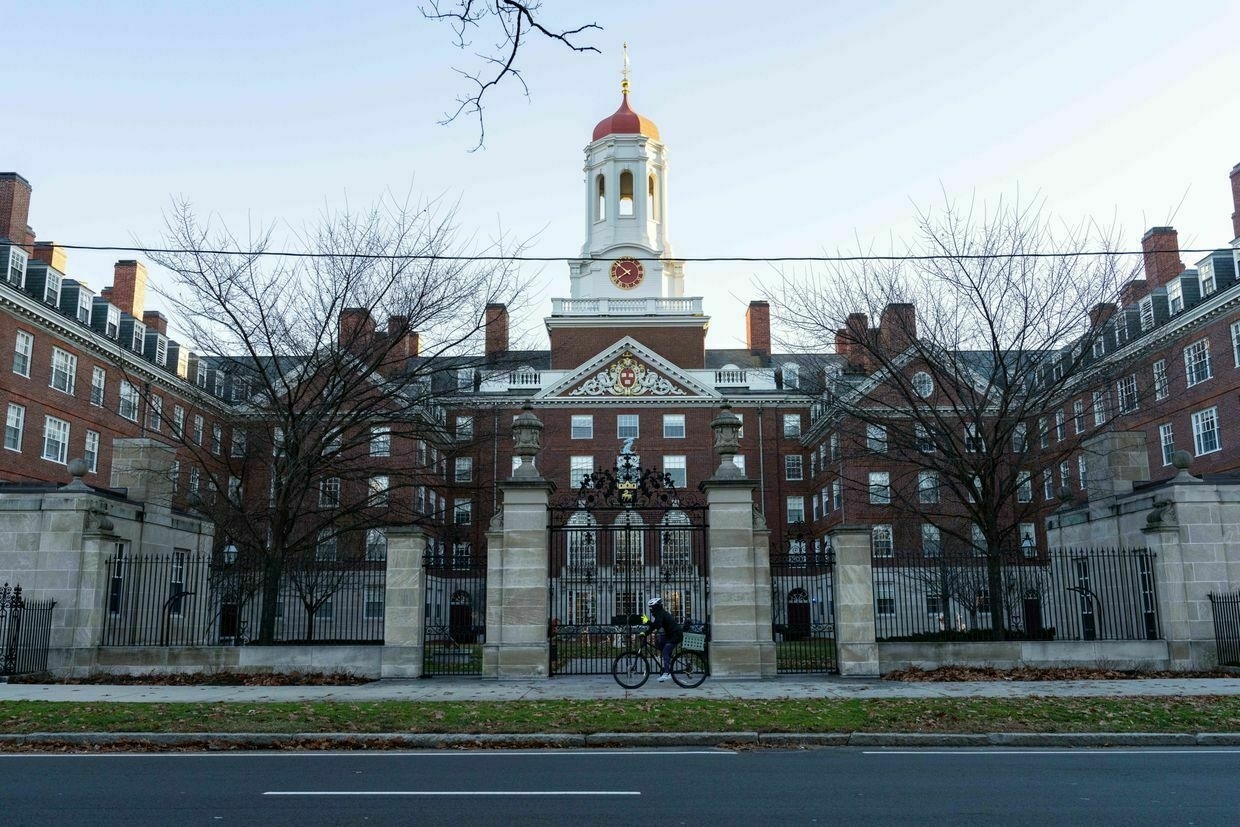
There was no immediate information on how many Ukrainians received the notice.
The Biden administration’s Uniting for Ukraine (U4U) program allowed around 240,000 Ukrainians to enter the U.S. under humanitarian grounds, with more than 20,000 Ukrainians entering through Mexico after the war began. This program granted temporary work permits and deportation protections.
The notice also indicated that work permits would be revoked once parole status was terminated and urged recipients to voluntarily leave the country using a government app called CBP Home, which the Trump administration repurposed for self-deportation. “Again, DHS is terminating your parole. Do not attempt to remain in the United States — the federal government will find you,” the notice read.
DHS later confirmed to CBS News that the termination notices were sent by mistake, and reassured that the U4U program had not been terminated.
While the Trump administration has not officially ended the U4U program, it has suspended admissions and status renewals. Advocates remain concerned, however, that DHS might attempt to strip Ukrainians of their legal protections in the future, especially as the Trump administration continues its broader crackdown on both illegal and legal immigration programs.
Why I’m leaving Trump’s America — historian Marci ShoreAmid the drama and turmoil created by Donald Trump’s second presidency, three Yale University professors last week announced they would be leaving the U.S. for Canada over concerns about the increasingly authoritarian direction their country is heading in. “I could feel the reign of terror spiralin…The Kyiv IndependentChris York
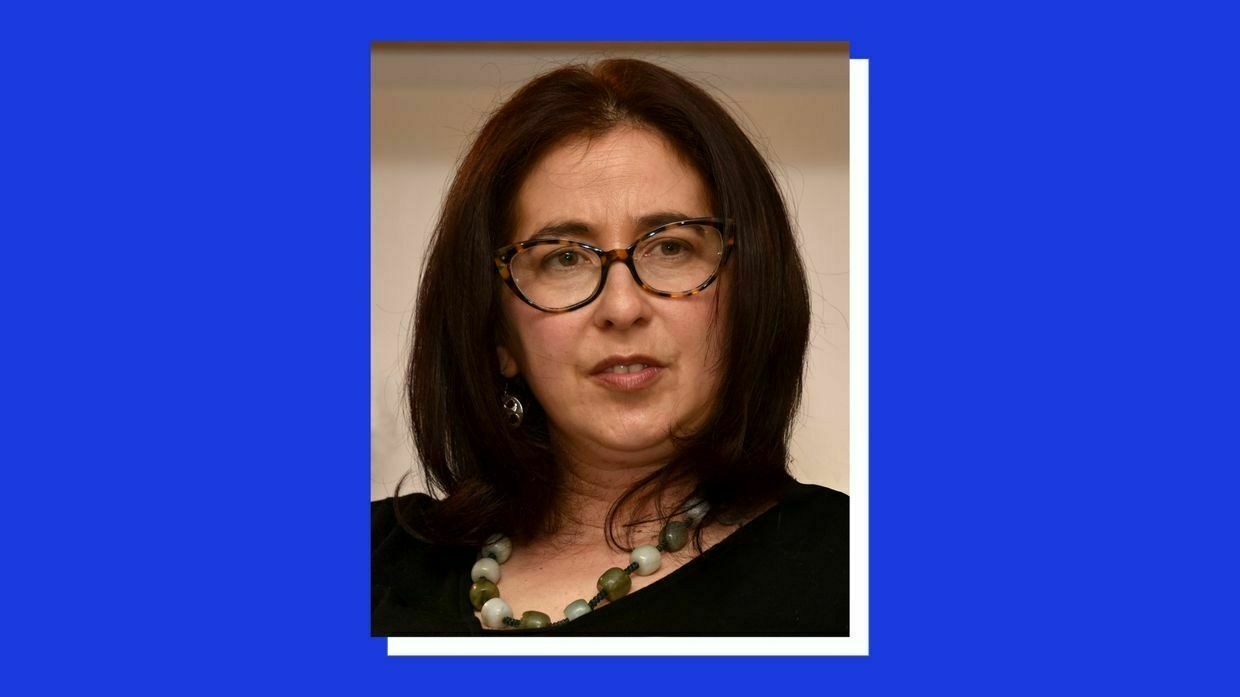
-
Europe must agree on roadmap to reduce reliance on US defense, Finnish minister tells FT
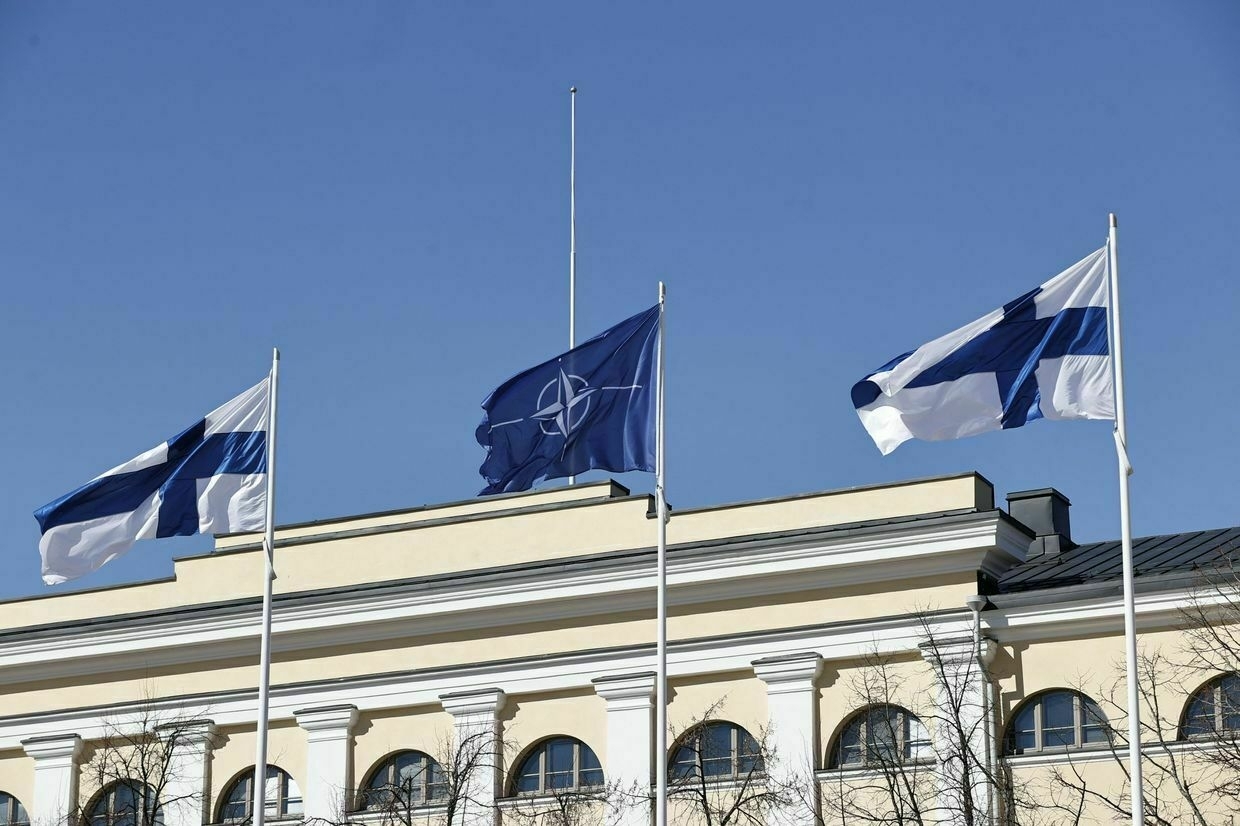
Europe must establish a clear roadmap in coordination with the United States to gradually take on more of the continent’s defense responsibilities, Finland’s Defense Minister Antti Hakkanen told the Financial Times (FT).
Hakkanen noted that Europe cannot afford a disjointed transition in defense capabilities, which could provide Russia with an opportunity to exploit any gaps in the region’s security. Hakkanen stressed that the burden of conventional defense capabilities must be shifted to European taxpayers to ensure a more balanced burden-sharing with the U.S.
As European capitals engage in discussions about scaling up their military capabilities, there is concern that the U.S. may reduce its support more quickly than Europe can increase its own defense spending.
Commenting on the situation, Hakkanen pointed out that many countries in the alliance fear the U.S. will pivot away from Europe, focusing more on the Indo-Pacific region, before Europe is fully prepared to take on the increased responsibilities. “…The key question is do we have this joint road map, a timetable . . . so that there will be no window of opportunity for Russia, if the US is shifting the balance too early and Europe is not fast enough."
NATO Secretary-General Mark Rutte reassured allies that the U.S. has no plans for a sudden withdrawal from Europe, but any reduction in forces would be coordinated with European partners. U.S. Secretary of State Marco Rubio also indicated that while President Donald Trump supports NATO, he expects European allies to develop a “realistic pathway” to reduce reliance on American taxpayers.
According to NATO officials, Europe currently depends heavily on the U.S. for critical defense assets such as air and missile defense systems, long-range precision missiles, and command and control infrastructure. NATO allies also rely on the U.S. for heavy-lift aircraft necessary for quickly moving armored forces. Hakkanen stressed the urgency of these discussions, noting that Germany and other nations are working to establish a clear timeline with the U.S. on the transition of defense responsibilities.
The Finnish Defense Minister warned that Europe faces two significant challenges: Russia’s ongoing military advances, even with potential peace in Ukraine, and the U.S.' strategic shift toward the Indo-Pacific region.
“And we’re now starting to see the signs that they (the US) are really starting to do this conventional power shift."
US to know whether Russia ‘serious about peace’ with Ukraine in coming weeks, Rubio says“We will know soon enough, in a matter of weeks, not months, whether Russia is serious about peace or not. I hope they are,” U.S. Secretary of State Marco Rubio said.The Kyiv IndependentTim Zadorozhnyy
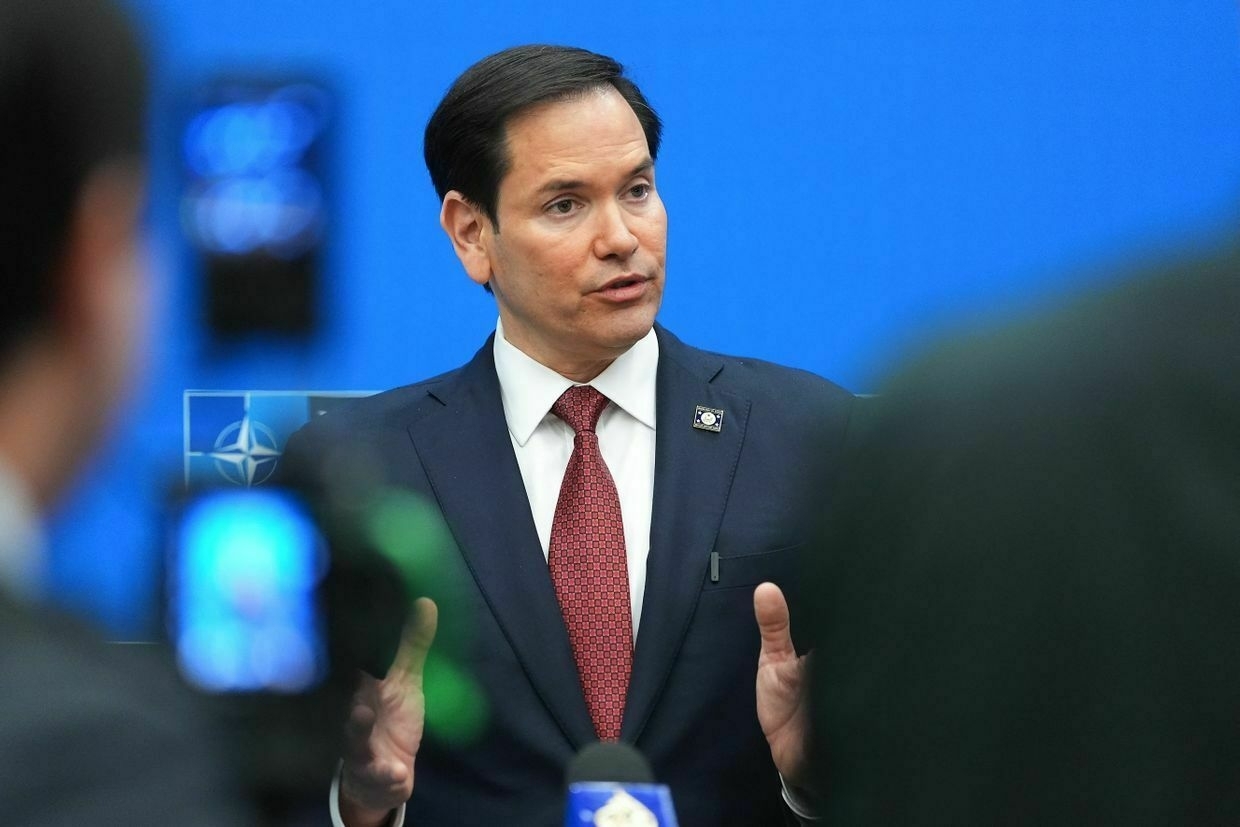
-
Who is Kirill Dmitriev, Putin's Trump-whisperer
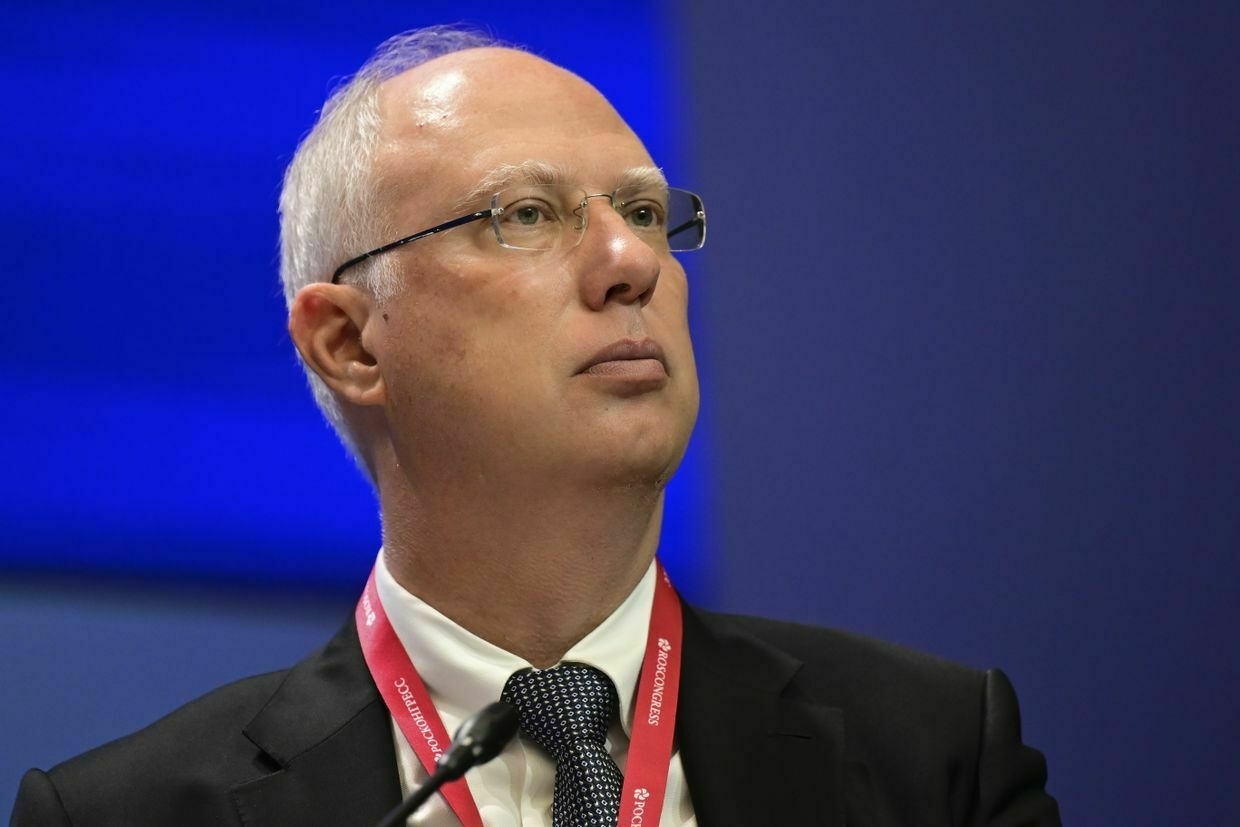
Kirill Dmitriev, head of Russia’s sovereign wealth fund, has become a key figure in the Kremlin’s outreach to the Trump administration.
Russian President Vladimir Putin appointed the 49-year-old Kyiv native as special envoy for economic affairs in an attempt to interest Washington in joint economic ventures in return for a favorable peace deal.
Dmitriev, who earned degrees from prestigious U.S. universities and has experience in dealing with the American business world, seems an ideal choice for the task.
Kyiv-born, Harvard-educated financierDmitriev was born in Kyiv in 1975 in Soviet Ukraine. His father, Oleksandr, is a well-known Ukrainian biologist working at the Institute of Cell Biology and Genetic Engineering of the National Academy of Sciences.
Dmitriev’s education and professional debut perfectly positioned him as an up-and-coming member of Russia’s technocratic elite.
At the age of 14, Dmitriev was one of the first Soviet exchange students to travel to the U.S., where he studied at Fооthill College in California. He went on to graduate with honors from an economics program at Stanford University and received his MBA at Harvard.
Launching his business career abroad, Dmitriev worked as a consultant at McKinsey & Company in Los Angeles, Moscow, and Prague, and as an investment banker at Goldman Sachs.
He then moved to Moscow in 2000 to become the deputy CEO of the IT company IBS at the age of 25. Dmitriev’s business associates saw the Harvard-educated financier as an example of Russia’s new business class after the economic downturns of the 1990s.
Speaking to Kommersant at the time, IBS founder Anatoly Karachinsky singled him out as “one of the best” repatriates coming to Russia after working for the “largest American companies."
Dmitriev’s professional career later included a position at Delta Private Equity Partners, created under the U.S.-Russia Investment Fund. Between 2007 and 2011, the businessman lived in Ukraine, where he headed Icon Private Equity of Ukrainian oligarch Victor Pinchuk.
In Ukraine, Dmitriev advocated for closer ties between his former and current homeland, saying in the media that Ukraine’s renunciation of ties with Russia would result in an “economic starvation."
Friend of Putin’s daughter and head of Russia’s ‘slush fund’Dmitriev entered the Kremlin’s inner circles with the help of his wife, Natalia Popova, a university classmate and business associate of Putin’s daughter, Katerina Tikhonova.
Popova works as Tikhonova’s deputy at her Innopraktika fund, where Dmitriev sits on the board of trustees.
In 2011, the financier was appointed CEO of the new Russian Direct Investment Fund (RDIF), a state-controlled fund launched to foster partnerships with foreign investors and invest in Russian companies.
Under Dmitriev’s leadership, the RDIF oversaw $40 billion in investment across 100 deals, building relationships with funds from France, Italy, Japan, China, and the Gulf states.
The fund was launched when Russia was seeking better ties with the West under then-President Dmitry Medvedev.
Medvedev was touring American tech giants in Silicon Valley while U.S. President Barack Obama’s “Reset” policy sought to mend ties with Moscow.
Medvedev and Putin (at the time prime minister) “set the task of creating such a fund that would result from an open dialogue with leading global investors and enjoy their support,” Dmitriev told the Banki outlet in an interview in 2012.
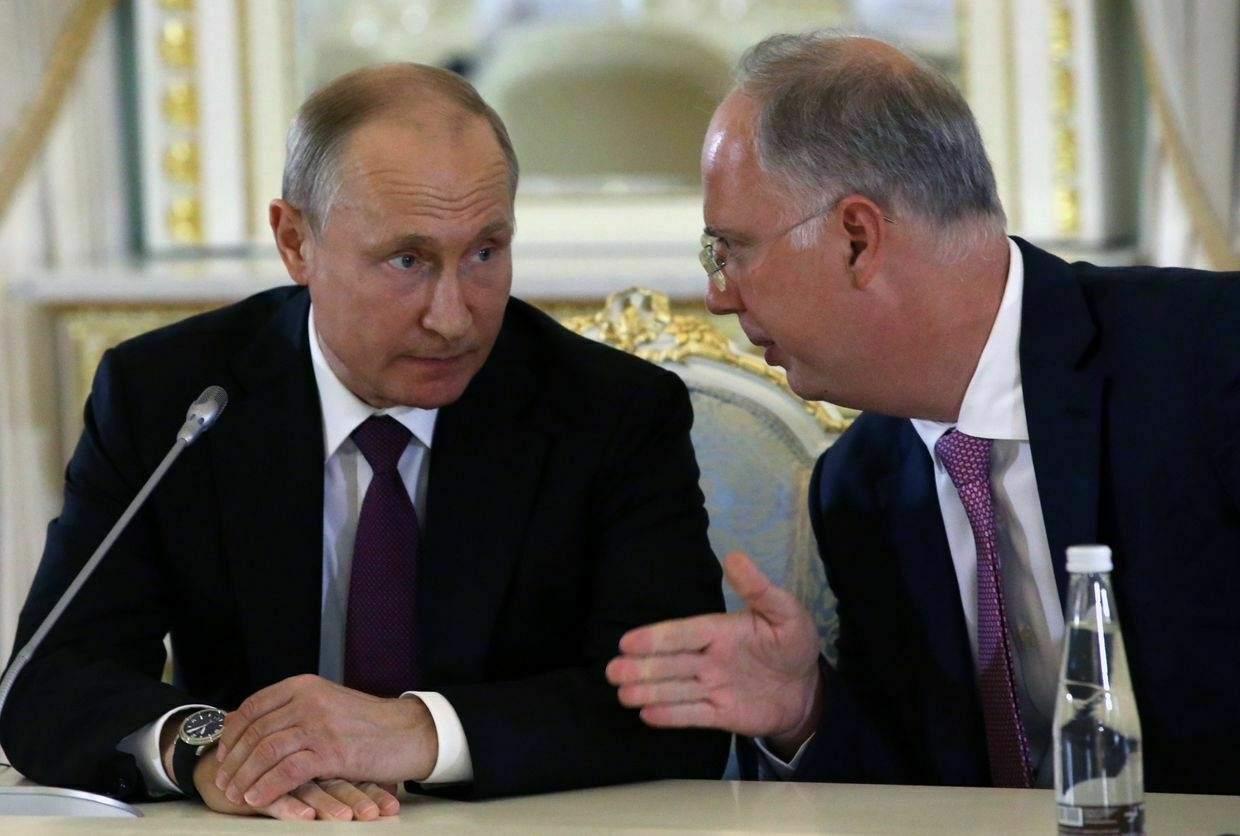
Russian President Vladimir Putin listens to Kirill Dmitriev, head of Russia’s sovereign wealth fund, during a meeting with foreign investors at the Saint Petersburg International Economic Forum in St. Petersburg, Russia, on May 24, 2018. (Mikhail Svetlov / Getty Images) This honeymoon period definitively ended in 2014 with the Russian occupation of Crimea and the subsequent Western sanctions, which also hit the RDIF’s parent, state development and investment company VEB.
Two years later, Putin removed the RDIF from VEB’s structure and remade it into Russia’s sovereign wealth fund.
Publicly, Dmitriev sought to maintain an apolitical, business-only facade.
“There are forces in Russia that are good for the world economy. We are one of them,” he told the Financial Times in an interview in 2014. “We’re not a humongous player, and we have no political agenda."
But behind the scenes, Dmitriev has built himself into one of the most effective fixers and lobbyists among the Russian political elite, an investigation by the Insider said.
Dmitriev’s role in Russian hierarchy was recognized by the West once Russia launched its full-scale war against Ukraine in 2022 — mere days after the invasion, the Biden administration sanctioned the RDIF and its CEO.
“Recently designated Russian President Vladimir Putin and his inner circle of cronies have long relied on RDIF and Dmitriev to raise funds abroad, including in the United States,” the Treasury Department said.
“While officially a sovereign wealth fund, RDIF is widely considered a slush fund for President Vladimir Putin and is emblematic of Russia’s broader kleptocracy."
Putin’s link to TrumpWhen Trump won his first election in 2016, Putin saw a chance. As revealed in Robert Mueller’s report on Russian election interference, Dmitriev established contact with Rick Gerson, a friend of Trump’s son-in-law Jared Kushner.
The Russian official reportedly told Gerson that he’s been instructed to prepare a reconciliation plan between the U.S. and Russia, and the two drafted a two-pager on possible cooperation vectors.
In January 2017, Dmitriev met another figure with ties to Trump’s campaign: Erik Prince, founder of the private military company Blackwater and brother of soon-to-be Education Secretary Betsy DeVos.
Dmitriev’s plans with Gerson did not materialize, and the Russian official reportedly described his meeting with Prince as disappointing. But the events set the stage for the Russian official’s renewed role as Putin’s envoy during Trump’s second attempt at the presidency.
Trump began his second term in office with the pledge to hammer out a swift peace deal between Kyiv and Moscow, restoring direct contact with Russia after years of isolation under the Biden administration.
Officially named a presidential envoy for economic cooperation with foreign countries, Dmitriev took part in the initial meeting with U.S. Secretary of State Marco Rubio and Special Envoy Steve Witkoff in Riyadh on Feb. 18.
The sovereign fund chief emerged as an increasingly prominent figure in Russian-U.S. negotiations, promoting various joint business ventures, from a minerals agreement to nuclear power stations for Elon Musk’s space projects.
Finally, on April 2, Dmitriev traveled to Washington to meet with Witkoff and other Trump officials after the U.S. State Department temporarily lifted sanctions imposed on him to allow the visit.
Dmitriev claimed the discussions included the possibility of restoring flights and the return of U.S. companies to Russia. He also said there has been “significant progress” toward a ceasefire, implying that economic cooperation was not the only issue on the table.
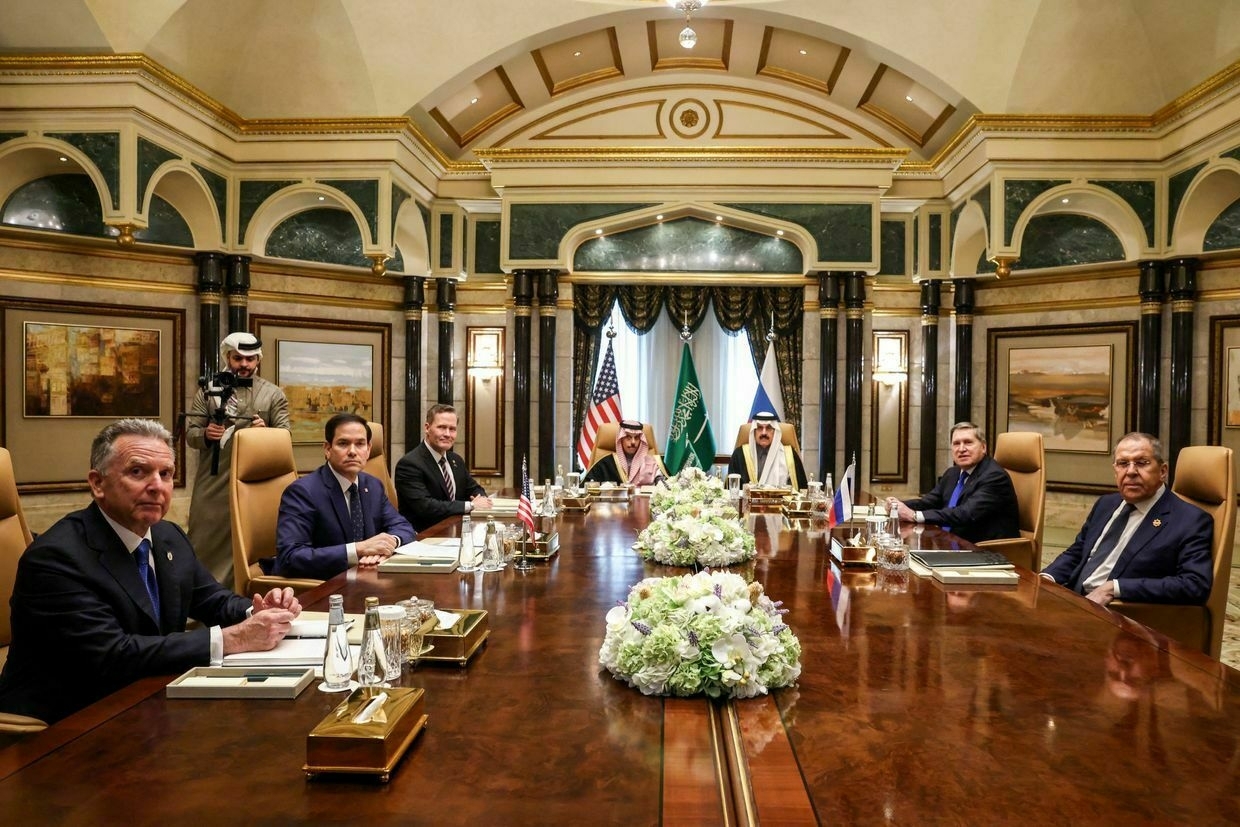
U.S. and Russian officials attend a meeting together at Riyadh’s Diriyah Palace in Riyadh, Saudi Arabia, on Feb. 18, 2025. (Evelyn Hockstein / POOL / AFP) The visit came as Trump voiced frustration with Russia’s delays in ceasefire talks, threatening tariffs on Russian oil. Yet, when the U.S. president unveiled fresh tariffs on nearly the entire world, Russia was notably absent.
Dmitriev seems to be at the forefront of the Kremlin’s charm offensive as Putin hopes to drive a wedge between Trump on one side and Kyiv and Europe on the other. It remains to be seen whether the Stanford and Harvard alumnus will be able to smooth out Trump’s exasperation.
“President Trump’s administration has made tremendous progress," Dmitriev heaped praise on the U.S. president in an interview with Trump’s favorite channel, Fox News.
“There is no question that President Trump’s team not only stopped World War III from happening but also had already achieved sizable progress on Ukraine resolution."
Publishing house of Harvard’s Ukrainian Research Institute latest target of Trump’s federal budget cutsThe future of Harvard’s Ukrainian Research Institute (HURI) publishing program is in jeopardy, as it has become the latest target of sweeping grant cuts under the administration of U.S. President Donald Trump. The National Endowment for the Humanities (NEH), an independent U.S. federal agency, info…The Kyiv IndependentKate Tsurkan
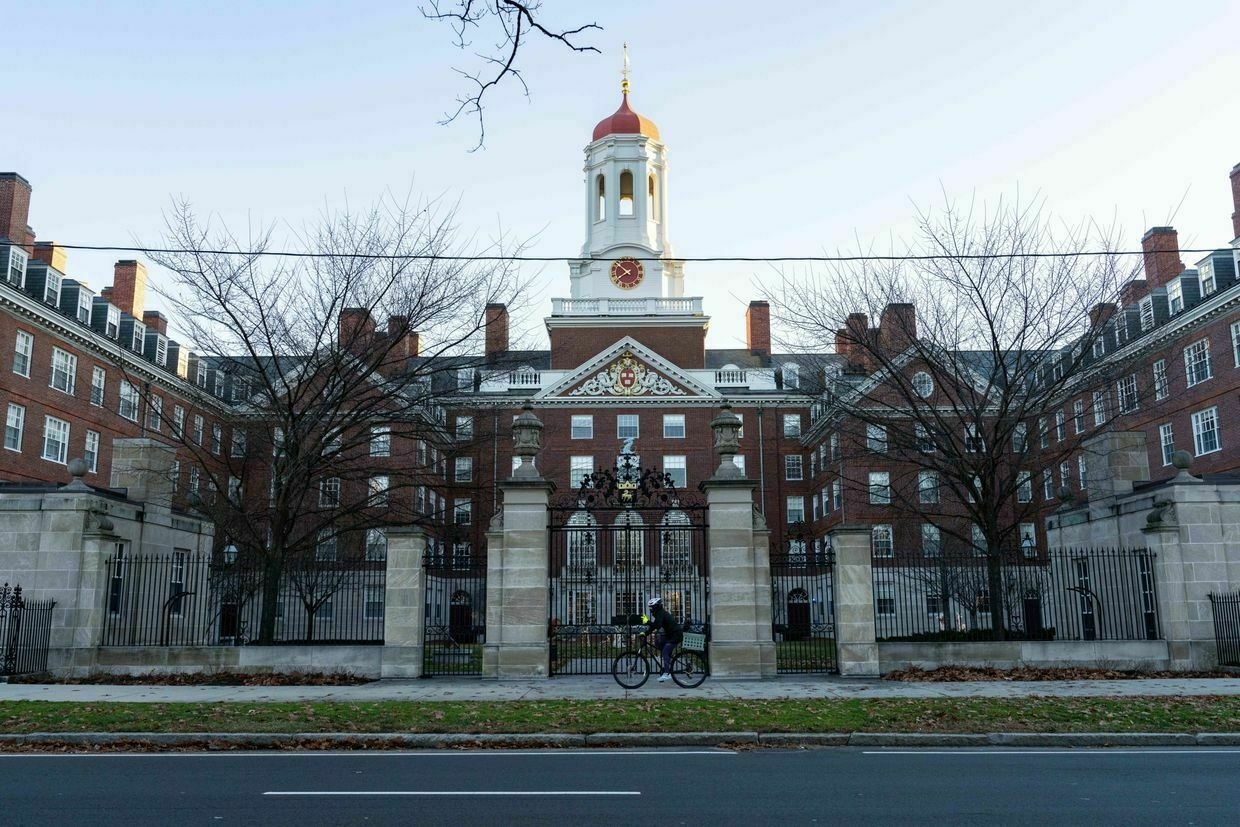
-
Ukraine war latest: US to know whether Russia 'serious about peace' with Ukraine in coming weeks, Rubio says
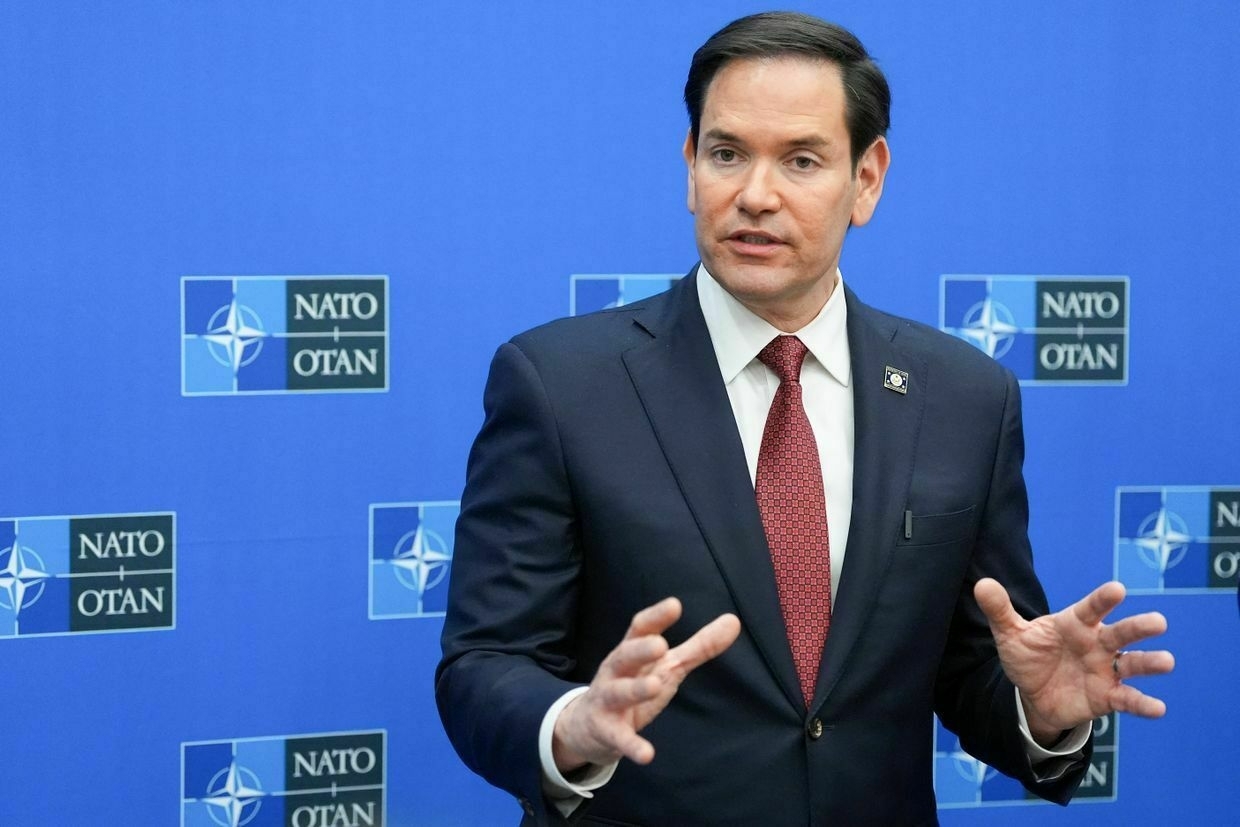
Key developments on April 4:
- US to know whether Russia ‘serious about peace’ with Ukraine in coming weeks, Rubio says
- US, Russia make ‘significant progress’ towards Ukraine ceasefire deal, Kremlin negotiator claims
- Trump’s team advises against calling Putin until Russia agrees to Ukraine ceasefire, NBC reports
- More F-16 jets being prepared for Ukraine, US general says
- Germany finances Ukraine’s use of Starlink alternative Eutelsat, Reuters reports
The U.S. will know within weeks whether Russia is serious about a peace deal with Ukraine, Secretary of State Marco Rubio said on April 4, Reuters reported.
“We will know soon enough, in a matter of weeks, not months, whether Russia is serious about peace or not. I hope they are,” Rubio said. He added that if the process drags on unnecessarily, U.S. President Donald Trump would not engage in “endless negotiations about negotiations."
His remarks follow reports that Trump is increasingly frustrated by continued aerial strikes from both Russia and Ukraine despite his mediation efforts.
The Telegraph reported on March 23 that Trump is growing angry over the ongoing attacks, while NBC News said on March 30 that he is “pissed off” at Russian President Vladimir Putin’s fixation on President Volodymyr Zelensky.
“We’re testing to see if the Russians are interested in peace. Their actions — not their words, their actions — will determine whether they’re serious or not, and we intend to find that out sooner rather than later,” Rubio said.
Kyiv had agreed to a full 30-day ceasefire in U.S.-mediated talks in Jeddah on March 11, but Russia rejected it unless it included conditions limiting Ukraine’s military capabilities, such as ending foreign military aid.
Instead, Ukraine, Russia, and the U.S. reached a partial ceasefire covering energy infrastructure and the Black Sea. Two days later, Zelensky accused Russia of striking Kherson’s energy facilities, calling for a response from Washington.
Moscow denied the attack, with Kremlin spokesperson Dmitry Peskov claiming Russia had adhered to the agreement but “reserves the right” to abandon it if Ukraine violates the terms.
The Russian side accused Ukraine of striking the Sudzha gas metering station in Kursk Oblast, a claim Kyiv dismissed as an attempt to justify further attacks.
Russian Foreign Minister Sergey Lavrov said on April 1 that Moscow had sent a list of alleged Ukrainian ceasefire violations to the U.S., the U.N., and OSCE.
Zelensky ordered Defense Minister Rustem Umerov on March 28 to provide Washington with proof of Russian ceasefire violations. The U.S. has not yet responded to either side’s claims.
While Trump has occasionally floated measures such as extra sanctions and tariffs on Russia, he has yet to take concrete steps to pressure Moscow, which continues its offensive operations.
Ukraine’s navy responds to reports US was ‘angry’ at sinking of Russia’s Moskva Black Sea flagshipThe Biden administration reportedly didn’t want Ukraine to attack “a potent symbol of Russian power.”The Kyiv IndependentThe Kyiv Independent news desk
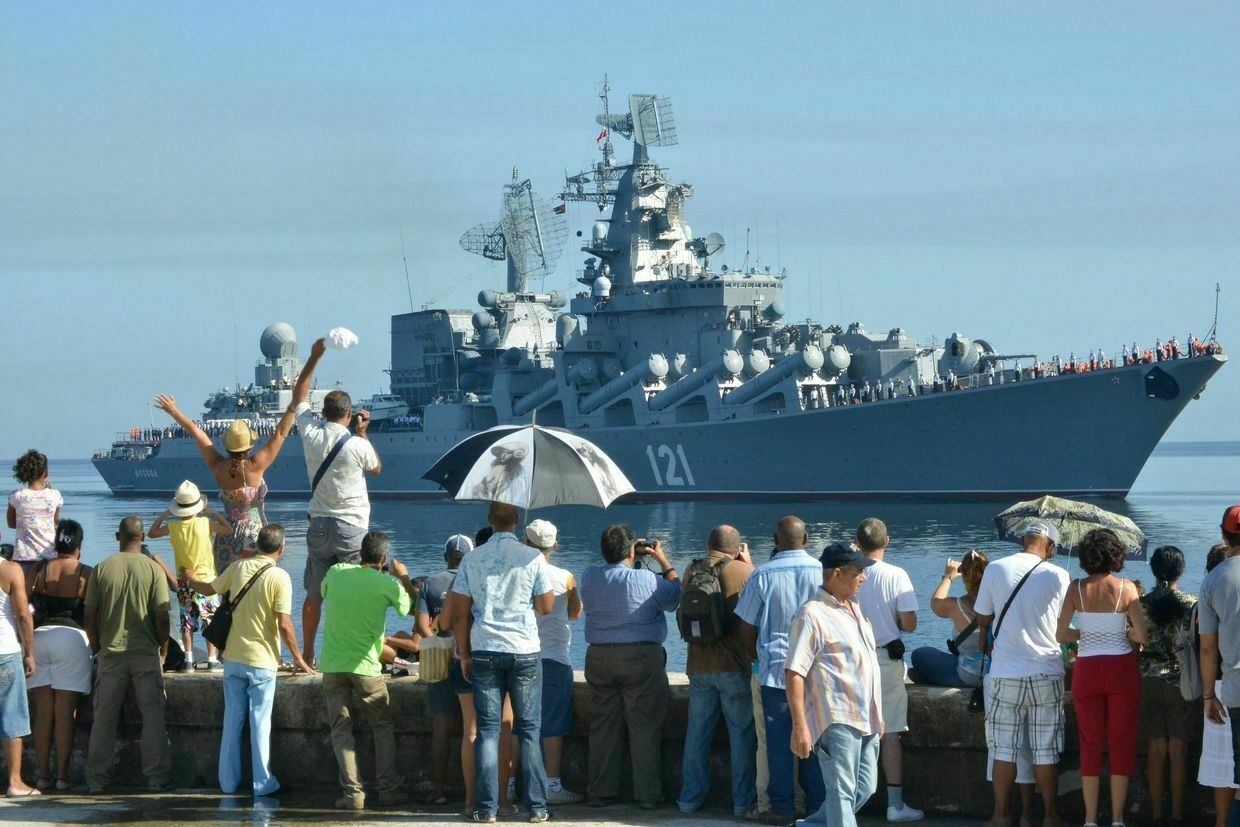
US, Russia make ‘significant progress’ towards Ukraine ceasefire deal, Kremlin negotiator claimsThe United States and Russia have made “significant progress” towards a ceasefire in the war in Ukraine, Kremlin negotiator Kirill Dmitriev said on April 3 following talks with officials at the White House.
“Significant progress has been made on the ceasefire agreement in Ukraine,” Dmitriev reported, according to the Russian state news agency TASS.
Dmitriev, who heads the state-controlled Russian Direct Investment Fund, met with U.S. officials in Washington on behalf of Russian President Vladimir Putin on April 2 and 3.
Dmitriev praised the administration under U.S. President Donald Trump for its constructive and respectful dialogue with Russia and said the two nations plan to restore and deepen their ties, including with further economic cooperation.
American businesses are prepared to return to Russia and fill the vacancies left after European companies withdrew in the wake of Russia’s full-scale invasion of Ukraine, Dmitriev said.
“U.S. companies are ready to occupy the niches left by European companies that left the Russian Federation,” TASS reported.
The two countries are also discussing restoring direct flights.
Other topics discussed included cooperation on rare earth metals and in the Arctic, Dmitriev told reporters in Washington, according to Reuters.
Dmitriev did not disclose any details related to a potential ceasefire agreement, but said the Trump administration “is listening to the position of the Russian Federation” and will determine the date for the next round of negotiations “in the near future."
President Volodymyr Zelensky on April 3 acknowledged that U.S. and Russian officials were holding private conversations on the possibility of a full ceasefire in Ukraine. Kyiv has said for weeks that it is ready to begin a complete 30-day ceasefire, in line with a proposal from Washington, as long as Russia accepts the same terms.
Russia has so far refused, only agreeing to partial ceasefires on energy infrastructure and in the Black Sea — in exchange for restored access to international markets.
"(I)n Saudi Arabia, you know, we agreed to an unconditional ceasefire,” Zelensky said.
“Russia has not agreed to it yet, we see that. Although we know that there are conversations between Americans and Russians on this topic. There are non-public conversations."
Dmitriev played a role in backchannel diplomacy between Moscow and Trump when he was first elected in 2016. The official was then appointed by Putin as his representative for foreign economic relations and was involved in early U.S.-Russian negotiations in Riyadh in February.
Russia was notably excluded from the sweeping tariffs the Trump administration unveiled on April 3.
Trump waiting for Kirill Dmitriev to report to Putin before taking further Ukraine ceasefire steps, Bloomberg reportsU.S. officials are reportedly growing increasingly frustrated with Moscow’s slowness in negotiations.The Kyiv IndependentKateryna Hodunova
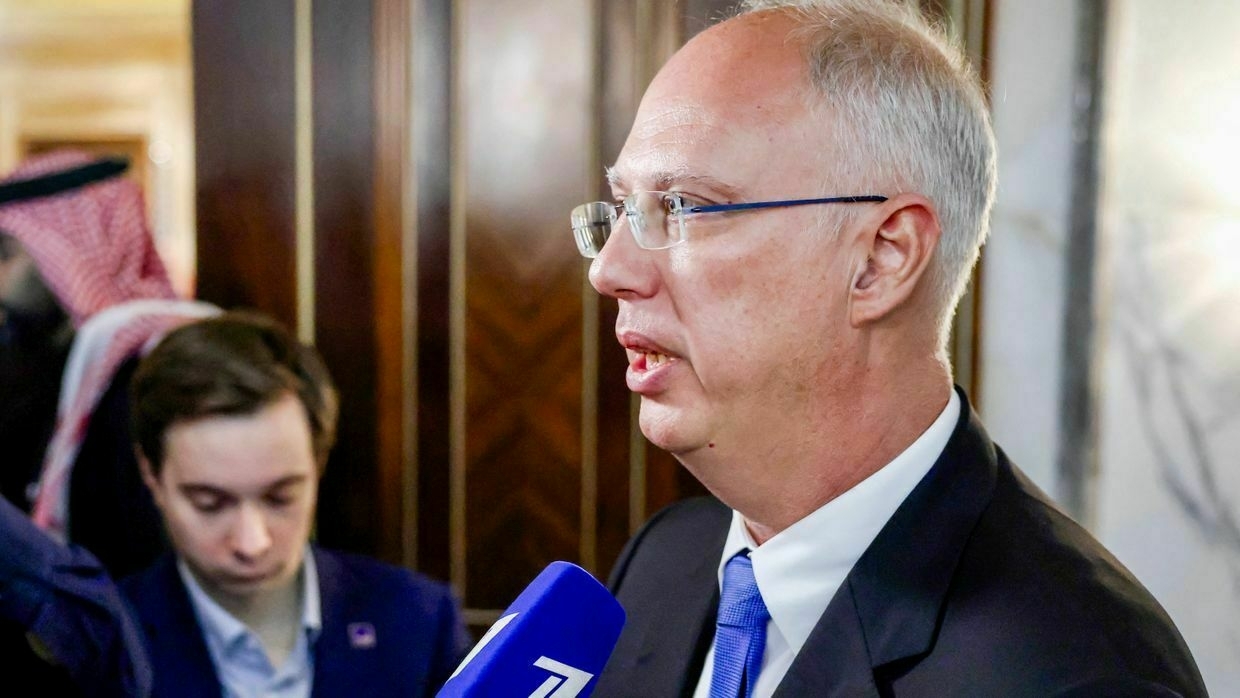
Trump’s team advises against calling Putin until Russia agrees to Ukraine ceasefire, NBC reportsU.S. President Donald Trump’s inner circle has advised him not to hold a phone call with Russian President Vladimir Putin until the Kremlin agrees to a ceasefire in Ukraine, NBC News reported on April 3, citing two unnamed officials.
On March 30, Trump said he is “very angry” at Putin about the lack of progress, but plans to speak to him in the near future. Trump and Putin held a phone call on March 18 amid peace talks in Saudi Arabia to end Russia’s war against Ukraine.
Despite Trump saying he plans to speak to Putin days earlier, no call between the two leaders has been scheduled, the unnamed officials said, adding his advisors are against the idea until the Russian leader commits to a full ceasefire.
The report added that it is possible Trump will abruptly decide he wants to speak to Putin.
Moscow has shown signs it is unwilling to move forward on a peace deal with Ukraine, and Russian authorities have listed maximalist demands in ceasefire negotiations with Ukraine and the U.S.
Ukraine has agreed to a U.S.-proposed full 30-day ceasefire, saying on March 11 that Kyiv is ready if Russia also agrees to the terms. So far, Moscow has refused.
On April 2, U.S. President Donald Trump’s special envoy for Ukraine, Keith Kellogg, said Ukraine and Russia are already approaching a ceasefire despite prior reports that a ceasefire is unlikely in the coming months.
How Trump’s tariffs will impact UkraineU.S. President Donald Trump on April 2 unleashed what he has dubbed “Liberation Day,” imposing tariffs on nearly every country in the world — including war-torn Ukraine. Kyiv got off lighter than most with only a 10% tariff on all Ukrainian goods, compared to 20% on the E.U., andThe Kyiv IndependentDominic Culverwell
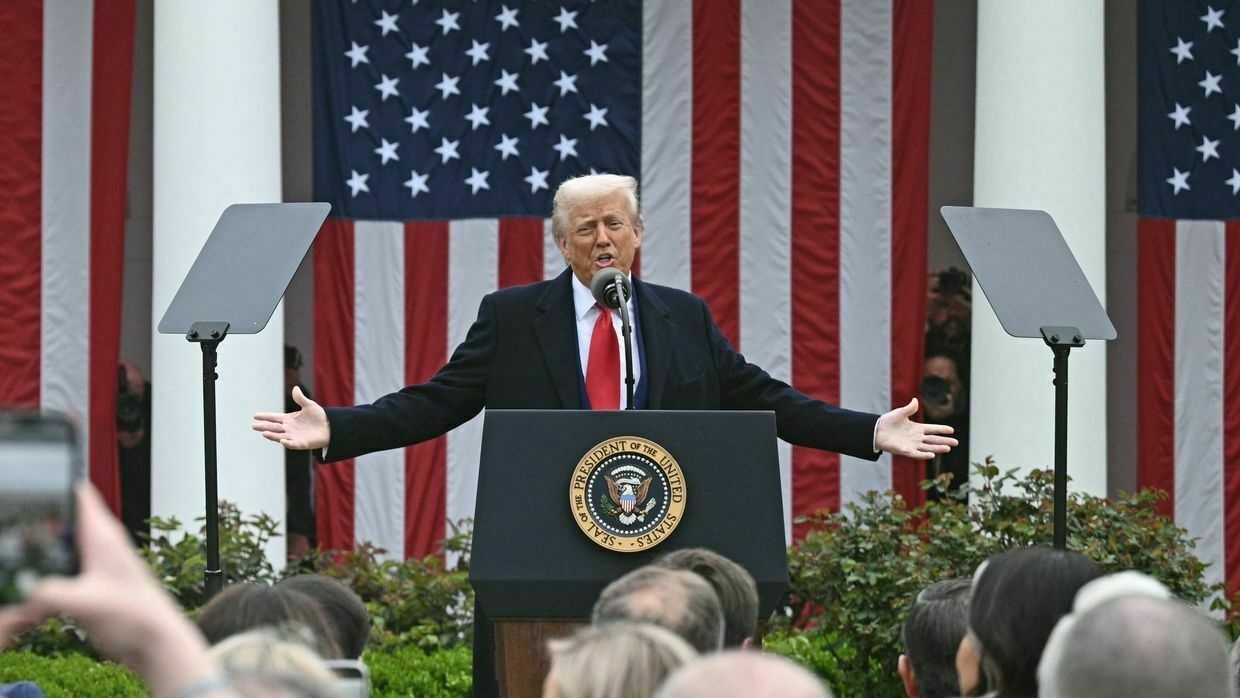
More F-16 jets being prepared for Ukraine, US general saysMore F-16 fighter jets are being prepared for transfer to Ukraine, U.S. General Christopher Cavoli said on April 3.
On March 19, President Volodymyr Zelensky confirmed that a new shipment of F-16 fighter jets arrived in Ukraine. Previously, Ukrainian officials said more F-16 fighter jets are expected to arrive in Ukraine this year.
Ukraine uses the F-16 jet to defend its skies, Cavoli said, adding that the jets intercept Russian missiles and have been used for offensive strikes.
“There are more F-16s prepared to be deployed in there. There are more pilots in the training pipelines,” Cavoli said.
Although the U.S. has trained Ukrainian pilots to operate the F-16 fighter jets, it has not provided the jets to Ukraine.
“None of the F-16s (have) been from the U.S., though. They’ve mainly been from northern European countries, (the) Netherlands (and) Denmark,” Cavoli said.
Several countries have contributed F-16 fighter jets to Ukraine’s defense efforts, with the Netherlands — who announced the continued deployment of F-16s to Ukraine — playing a significant role by committing 24 F-16s.
Denmark has pledged 19 F-16s, with initial deliveries made in 2024, while Norway has promised between 6 and 22 aircraft. Belgium has also announced its intention to supply F-16s, though the exact number remains undisclosed.
F-16s are used in both offensive and defensive operations. The aircraft have been used for intercepting Russian missiles and drones during aerial strikes against Ukraine. They could also be deployed to launch missiles and bombs at Russian positions along the front line.
Germany finances Ukraine's use of Starlink alternative Eutelsat, Reuters reportsGermany is financing Ukraine's access to a satellite internet network operated by French company Eutelsat, Reuters reported on April 4, citing Eutelsat CEO Eva Berneke.
The service serves as an alternative to tech billionaire Elon Musk's Starlink, which has played a key role in Ukraine's battlefield communications.
Eutelsat has been providing high-speed satellite internet services in Ukraine through a German distributor for about a year, with funding from the German government.
Ukraine currently has fewer than 1,000 terminals connecting to Eutelsat's network, but Berneke said the company aims to increase this to between 5,000 and 10,000 "relatively fast."
A Eutelsat spokesperson, Joanna Darlington, said discussions are ongoing regarding further funding from Germany and the EU.
Starlink, which provides service to over 50,000 Ukrainian military, medical, and civilian users, has faced uncertainty over continued access.
Concerns have grown after Reuters reported in February that the U.S. threatened to cut the service unless Kyiv agreed to a critical minerals deal.
Tech billionaire and SpaceX CEO Elon Musk denied these claims, and on March 9, claimed that cutting Ukraine off from Starlink would cause the country's entire front line to collapse.
The dispute escalated after a tense meeting between U.S. President Donald Trump and President Volodymyr Zelensky on Feb. 28, which led to a temporary halt in U.S. military aid and intelligence sharing as Washington sought to push Kyiv toward peace talks with Moscow.
Eutelsat's OneWeb network operates using a dual-constellation approach, combining low Earth orbit and geostationary satellites.
The system could provide essential connectivity for Ukraine's military, including for drone operations. Bloomberg reported on March 6 that Eutelsat is in advanced talks with the EU to potentially replace Starlink in Ukraine.
‘It would be foolish not to admire Putin’ — Elon Musk’s father Errol swoons over Russian PresidentIn an interview with BBC Russia, Errol Musk said Vladimir Putin says “logical things.”The Kyiv IndependentYuliia Taradiuk
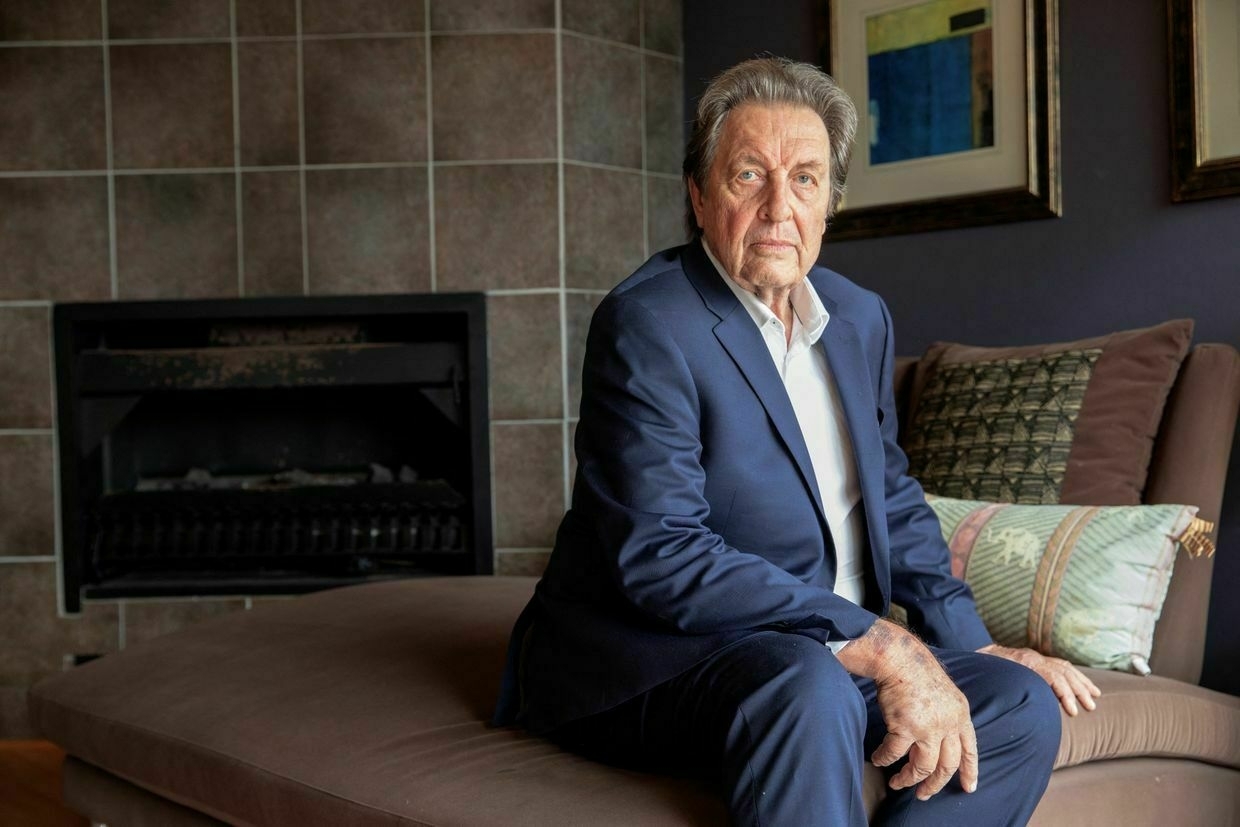
Note from the author:
Ukraine War Latest is put together by the Kyiv Independent news desk team, who keep you informed 24 hours a day, seven days a week. If you value our work and want to ensure we have the resources to continue, join the Kyiv Independent community.
-
Publishing house of Harvard’s Ukrainian Research Institute latest target of Trump’s federal budget cuts
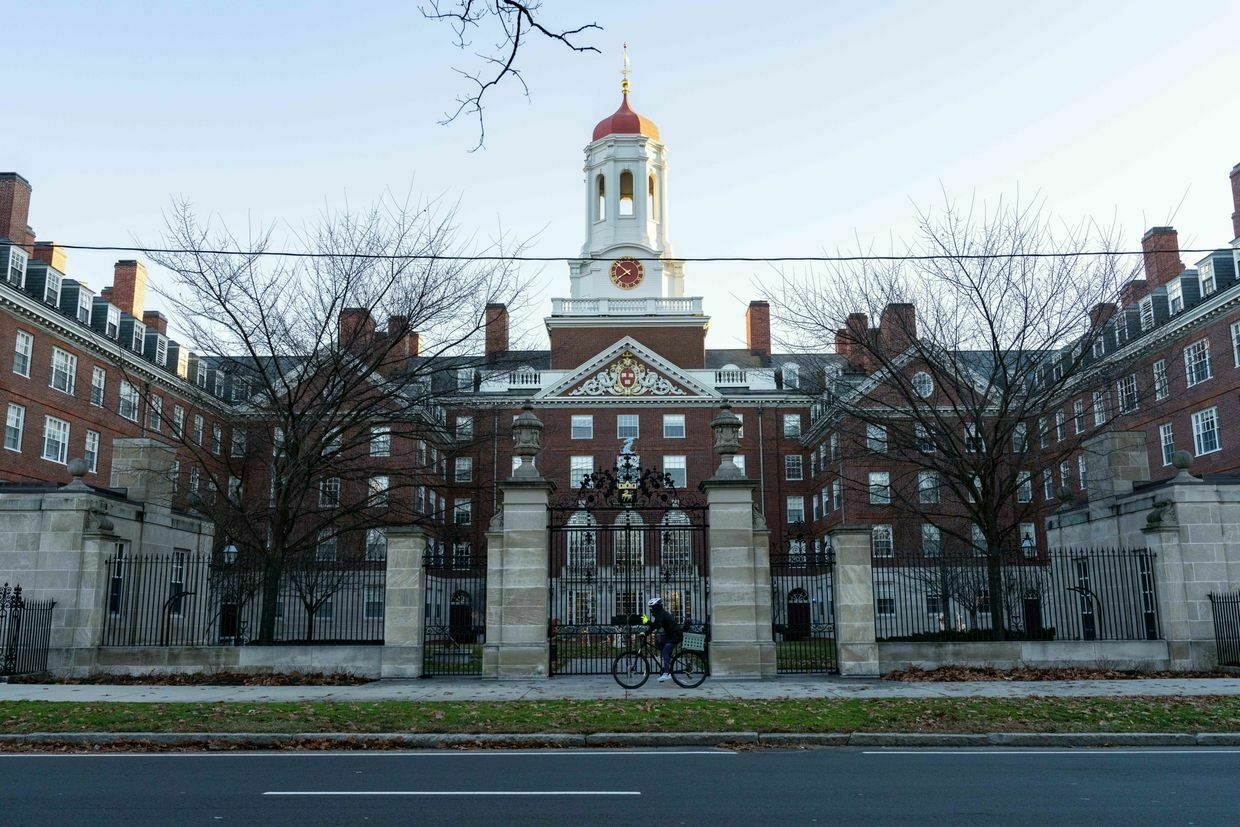
The future of Harvard’s Ukrainian Research Institute (HURI) publishing program is in jeopardy, as it has become the latest target of sweeping grant cuts under the administration of U.S. President Donald Trump.
The National Endowment for the Humanities (NEH), an independent U.S. federal agency, informed HURI that there was “reasonable cause to terminate (their) grant in light of the fact that the NEH is repurposing its funding allocations in a new direction in furtherance of the President’s agenda,” Oleh Kotsyuba, director of publications at HURI, wrote on Facebook on April 3.
Founded in 1973, the Ukrainian Research Institute at Harvard University is dedicated to cultivating new generations of scholars in Ukrainian history, language, and culture.
Over the past three and a half years, its publishing program has taken a leading role in translating both classic and contemporary works of Ukrainian literature. This endeavor has gained heightened urgency and global significance in the wake of Russia’s full-scale invasion in 2022, which is the latest chapter in a centuries-long Russian campaign to destroy Ukrainian culture and national sovereignty.
“(The work that we do) has helped me get through very dark times after Russia attacked Ukraine, knowing that these books would help educate the world about Ukraine and bring it closer to people,” Kotsyuba told the Kyiv Independent.
Now, that work is at risk. The loss of federal funding places the imminent publication of several books in limbo — and raises broader concerns about the future of cultural and academic initiatives under Trump’s administration.
Multifaceted Ukrainian literatureSince the start of their work three and a half years ago, HURI has published 14 books by Ukrainian authors in translation.
“My main goal with this series has been to show how diverse, multifaceted, rich, and self-sufficient Ukrainian literature is — and how Ukrainian authors have always focused on ethical issues in their works,” Kotsyuba said.
The grant from the National Endowment for the Humanities, which was just under $200,000, would have enabled HURI to showcase classic Ukrainian literature through a series of book publications, enabling English-language readers to engage with Ukraine’s history beyond the long shadow of Russian imperial narratives.
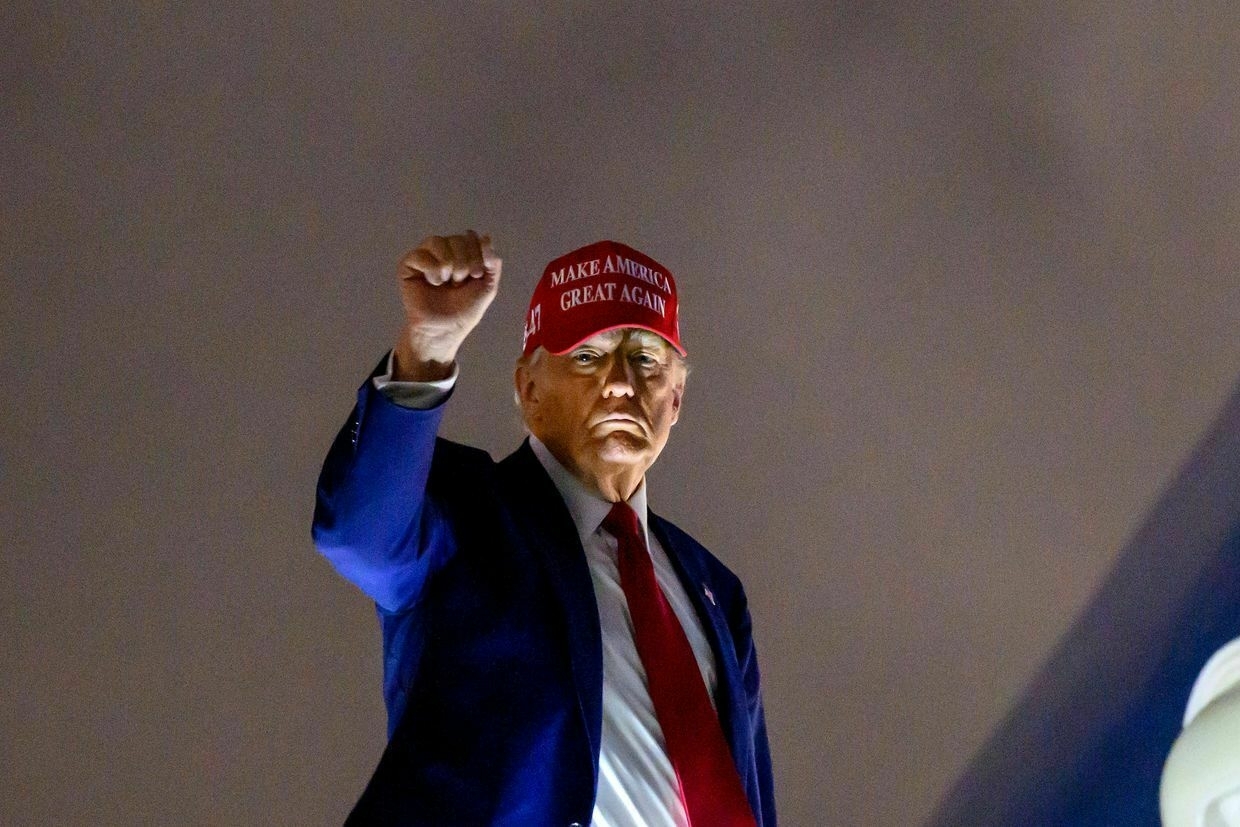
U.S. President Donald Trump pumps his fist as he boards Air Force One before departing Miami International Airport in Miami, Florida, U.S. on April 3, 2025. (Mandel Ngan / AFP via Getty Images) “The project that I was most excited about was an anthology of Ukrainian-Jewish poetry, edited by Ostap Kin,” Kotsyuba said.
“Because we won’t be able to hire an editor, we may have to postpone the publication of this important book — although we’ll do everything in our power to prevent that from happening.”
Other planned publications included Uilleam Blacker’s translation of 20th-century Ukrainian poet and prose writer Maik Yohansen’s experimental novel “Dr. Leonardo’s Journey to Sloboda Switzerland with his Future Lover, the Beautiful Alcesta.”
Yohansen was a prominent figure of Ukraine’s literary avant-garde in the 1920s. In 1937, he was arrested and executed by the Soviet secret police for taking a stand against the regime’s targeted repression of the Ukrainian intelligentsia.
HURI also planned to release more of 19th-century Ukrainian author Lesia Ukrainka’s work with the support of the NEH grant, namely “The Boyar’s Wife” and “The Blue Rose,” according to Kotsyuba.
“These books could have filled gaps, made previously unknown works available, and introduced more voices from Ukraine.”
"The Boyar's Wife" follows a Ukrainian woman married to a nobleman in Moscow as she struggles with Russians' different mentality and customs and longs for her homeland.
“The Blue Rose” explores the tension between dreams and reality as a young woman in love struggles to break free from society’s traditional constraints.
Ukrainka was not only the foremost feminist voice in Ukrainian literature but also a powerful emblem of Ukrainian national identity and cultural resistance against Russian imperialism. Through her work, Ukrainka positioned Ukrainian literature within the broader currents of European intellectual and philosophical thought.
“These books could have filled gaps, made previously unknown works available, and introduced more voices from Ukraine. They are vital in broadening the (global) understanding of Ukraine and its culture,” Ostap Kin told the Kyiv Independent.
A larger, worrying trendThe funding cuts impacting HURI are part of a broader trend that has accelerated since the beginning of Trump's second term in January.
In late March, the U.S. State Department informed Congress of plans to dismantle the U.S. Agency for International Development (USAID), redistributing some of its functions under its direct jurisdiction.
This move followed the announcement of significant cuts to USAID, which has long been a critical source of support for civic, health, and cultural initiatives, not just in Ukraine but around the world.
“We are reorienting our foreign assistance programs to align directly with what is best for the United States and our citizens,” U.S. Secretary of State Marco Rubio claimed in a post on X on March 28.
In the wake of these setbacks, organizations like HURI are turning to their supporters for help.
In his Facebook post about the NEH funding cuts, Kotsyuba asked those with the financial means to support the publication program and encouraged both university and local libraries to purchase their books. He also stressed the importance of spreading awareness about the vital work they do.
“We will continue doing what we can to the best of our ability given the resources that we have,” Kotsyuba said.
“But — over three years into Russia's war — it will be a lot more difficult.”
Note from the author:
Hey there, it's Kate Tsurkan, thanks for reading my latest article. Learning that publishing Ukrainian literature in translation doesn't "align" with Trump's agenda was just the latest absurd and sad news to come out of my native U.S., and so I just had to write about it. I hope you learned about the work of this great publishing house and the important work they do. If you like reading this sort of thing, please consider becoming a member of the Kyiv Independent.
Ukrainian author Oksana Zabuzhko on why Ukrainians ‘don’t have to respect Pushkin’Over the past three years of full-scale war, Ukraine’s cultural figures have shifted from focusing solely on their craft to becoming diplomats, advocating for their culture abroad as the Russian army continues its relentless attempt to destroy it. At the same time, within Ukraine itself, a resurgen…The Kyiv IndependentKate Tsurkan
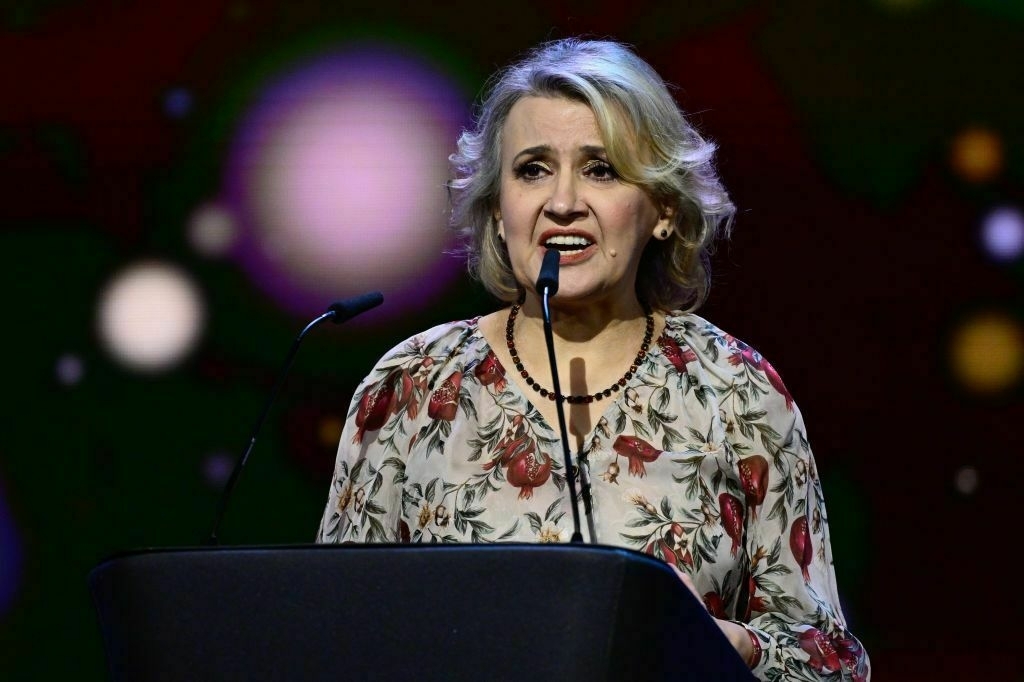
-
Any Ukraine-Russia peace deal will be 'difficult to digest,' Turkish FM says
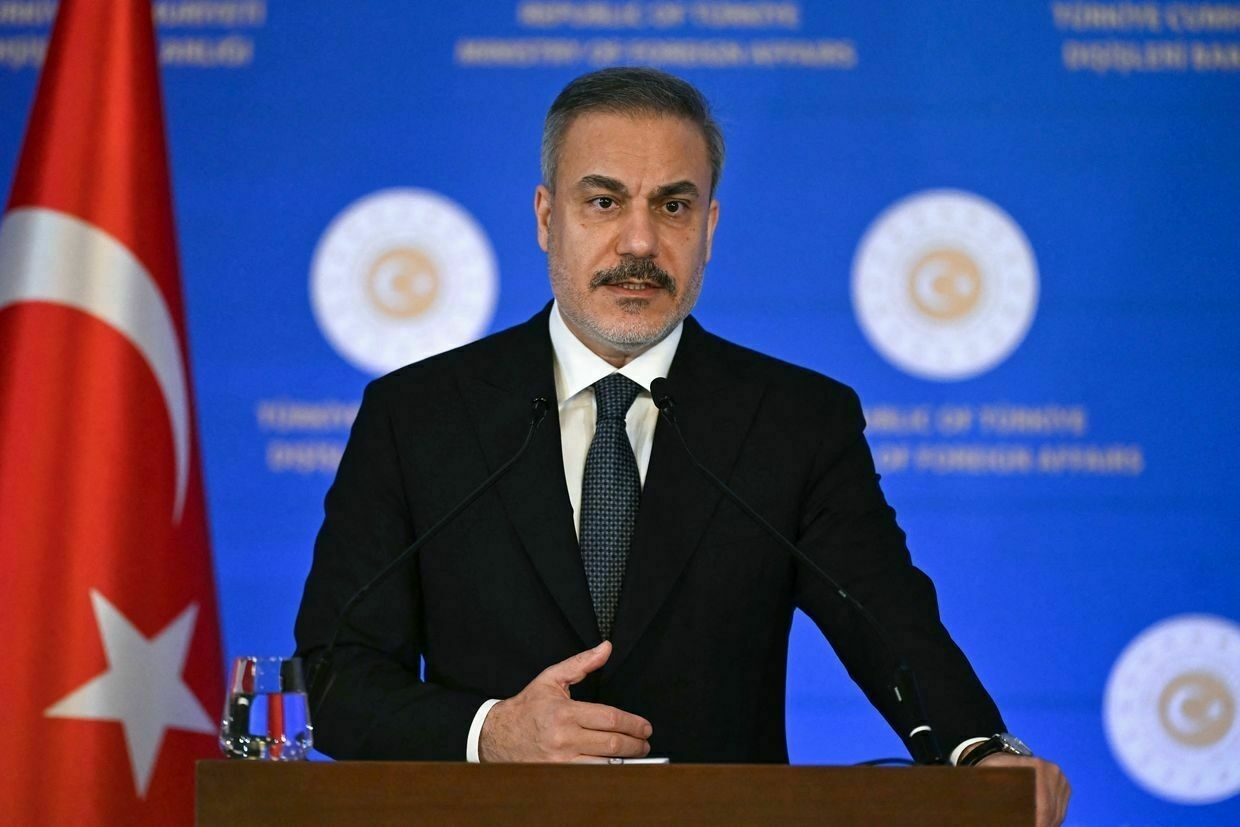
Any peace deal between Ukraine and Russia will be “difficult to digest,” but it is preferable to continued war, Turkish Foreign Minister Hakan Fidan told Reuters on April 4.
“It will be extremely difficult to digest any proposal,” Fidan said. “But when we look at the other option, which is more death and destruction, I think whatever the conditions that we have… will be more reasonable."
Fidan said Turkey supports a U.S. initiative to end the war but acknowledged that the sides remain “a little bit far away” from reaching a peace deal.
His comments follow repeated statements from U.S. officials that Ukraine and Russia will have to make concessions. Secretary of State Marco Rubio said on March 10 that Ukraine would need to cede territory as part of a potential agreement.
Kyiv had agreed to a full 30-day ceasefire in U.S.-mediated talks in Jeddah on March 11, but Russia rejected it unless it included conditions limiting Ukraine’s military capabilities, such as ending foreign military aid.
Instead, Ukraine, Russia, and the U.S. reached a partial ceasefire covering energy infrastructure and the Black Sea. Two days later, Zelensky accused Russia of striking Kherson’s energy facilities, calling for a response from Washington.
While U.S. President Donald Trump has occasionally proposed measures such as additional sanctions and tariffs on Russia, he has not taken concrete steps to pressure Moscow, which continues its offensive operations.
Turkey, a NATO member, has maintained ties with both Kyiv and Moscow since Russia’s full-scale invasion in 2022. While it has backed Ukraine’s territorial integrity and supplied military aid, Ankara has refrained from imposing sanctions on Russia.
US to know whether Russia ‘serious about peace’ with Ukraine in coming weeks, Rubio says“We will know soon enough, in a matter of weeks, not months, whether Russia is serious about peace or not. I hope they are,” U.S. Secretary of State Marco Rubio said.The Kyiv IndependentTim Zadorozhnyy
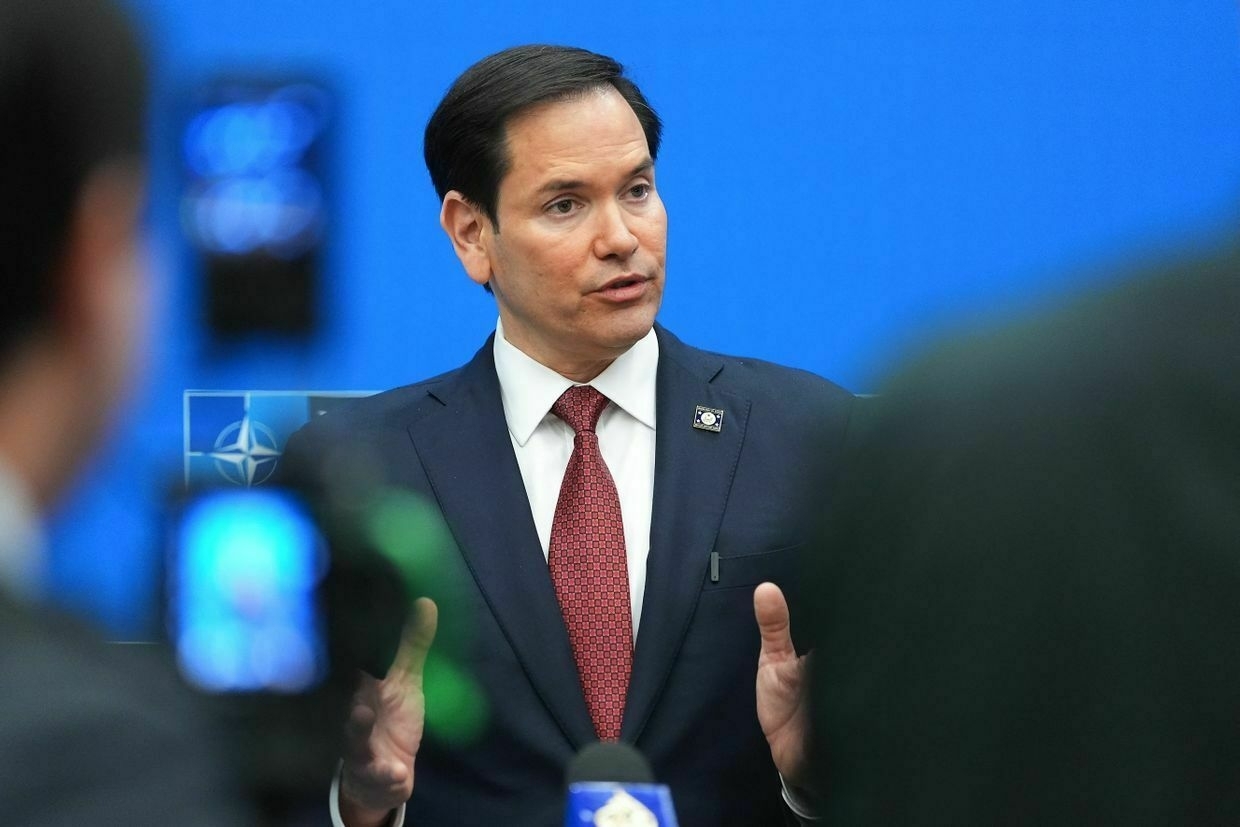
-
Armenian president signs law to begin EU accession process
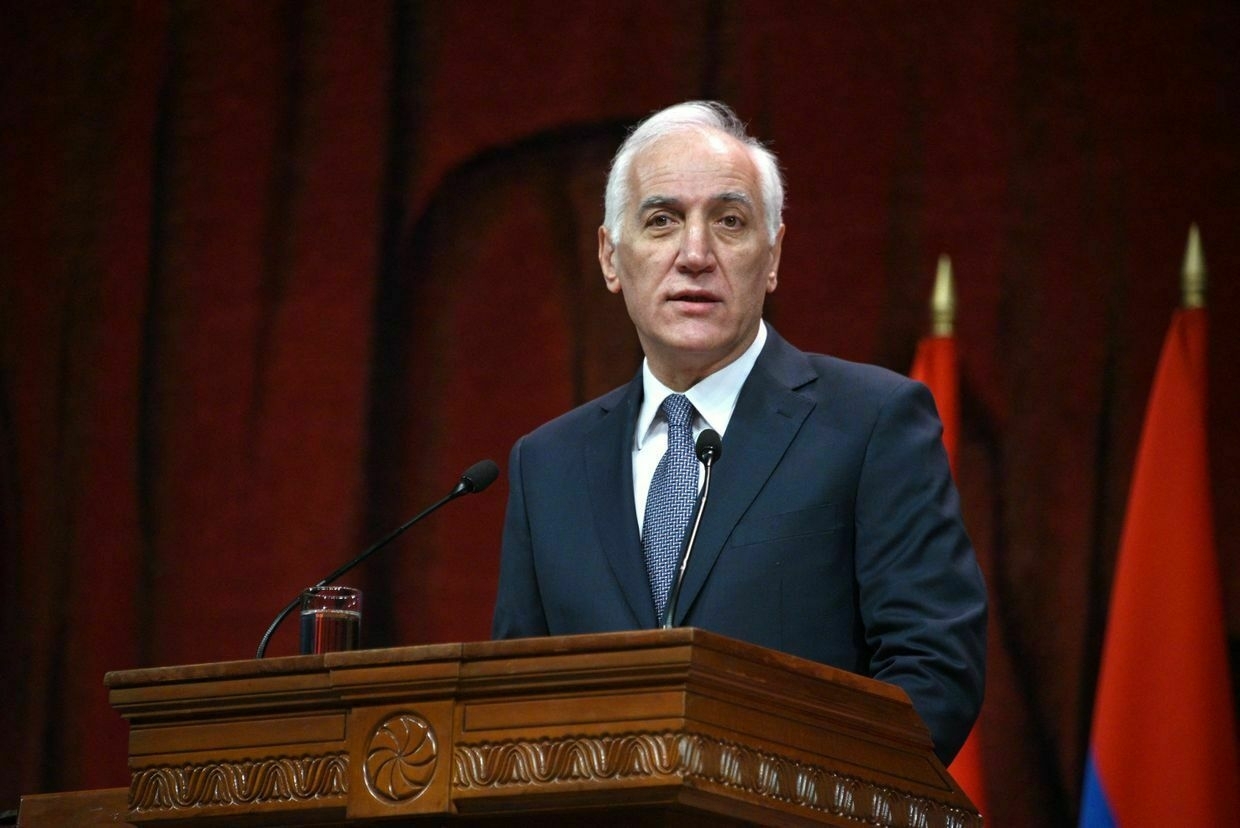
Armenian President Vahagn Khachaturyan signed a law on April 4 to formally begin Armenia’s accession process to the European Union, Armenia’s presidential press service announced.
The document does not mean immediate accession, but reflects the “aspirations of citizens.” European integration is now part of Armenian legislation.
The Armenian parliament passed the bill, “On starting the process of accession of the Republic of Armenia to the European Union,” in its final reading on March 26.
The initiative, launched as a civil petition after gathering 60,000 signatures, was backed by 64 lawmakers, with seven voting against it. Armenian Prime Minister Nikol Pashinyan has stressed that the process can only proceed if the Armenian people approve it in a referendum.
The Kremlin previously warned that a country cannot be a member of both the EU and the Russian-led Eurasian Economic Union (EAEU).
“Being members of two different organizations, hypothetically speaking, is simply impossible,” Kremlin spokesperson Dmitry Peskov said.
The EAEU, founded in 2015, consists of Russia, Belarus, Kazakhstan, Armenia, and Kyrgyzstan and is widely seen as a tool for Moscow to maintain influence over former Soviet states.
Armenia’s growing rift with Russia accelerated after the Kremlin failed to prevent Azerbaijan’s September 2023 offensive in Nagorno-Karabakh, leading to the mass exodus of the region’s Armenian population.
Pashinyan previously said that while Armenia seeks closer ties with the EU, full membership remains uncertain.
The European Parliament urged the EU to deepen ties with Armenia in a March 2023 resolution, noting that the country meets the Maastricht Treaty’s requirements to apply for membership.
Trump to attend NATO summit in The Hague in June, Sikorski saysU.S. President Donald Trump will attend the NATO summit in The Hague in June, Polish Foreign Minister Radoslaw Sikorski said on April 4, Reuters reported.The Kyiv IndependentKateryna Hodunova
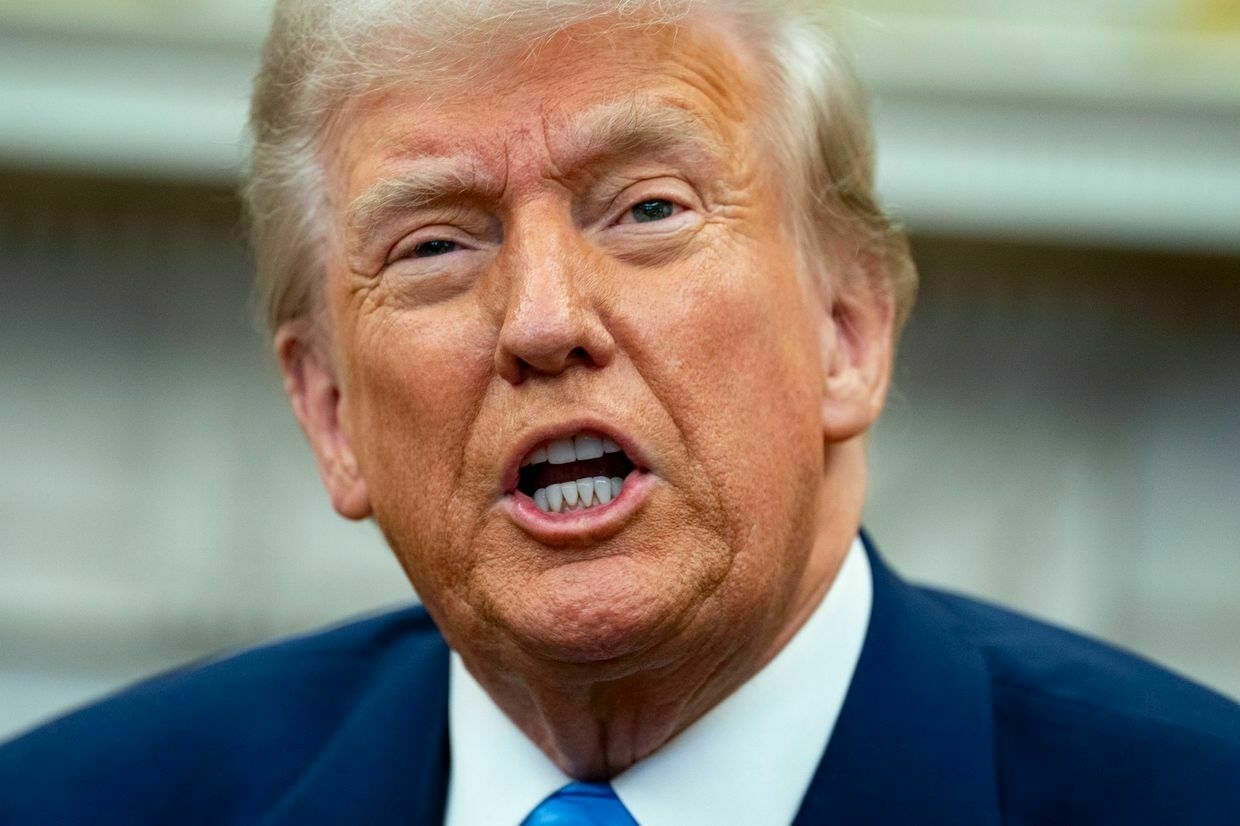
-
Kyiv: Ukraine strives to ensure sovereignty in U.S. minerals agreement
Ukraine is currently conducting domestic procedures to finalize a minerals agreement with the United States, said Ukrainian Foreign Minister Andriy Sybiha as reported by Suspline.
Currently, the document is under review to ensure it aligns with Ukraine's Constitution. "The agreement cannot contradict our European integration; we’ve been clear with the Americans," Sybiha stated. He emphasized that one of the top law firms should be involved in the analysis to work alongside the American side and assist Ukraine. It's anticipated that a Ukrainian delegation will head to the U.S. soon for further negotiations, with an online round possibly taking place today.
U.S. President Donald Trump previously claimed that Ukrainian President Volodymyr Zelensky wants to abandon the minerals agreement with the U.S., as reported by Reuters. Trump warned Zelensky of "big, big problems" if he declines the deal.
Meanwhile, U.S. Treasury Secretary Scott Behnette indicated that a Ukrainian delegation might arrive in the U.S. late this week or early next week, with the date still being finalized according to the Office of the President of Ukraine.
The Washington Post reported that the new minerals agreement proposed by the U.S. seems as though Ukraine fought and lost a war with Americans and is now bound to pay lifetime reparations, according to Washington Post. Currently, the agreement lacks security guarantees for Ukraine, with all U.S. support during the war treated as a debt payable from agreement revenues with interest. Moreover, the American side seeks control not only over rare earth metals extraction but over all minerals and related infrastructure.
-
US to know whether Russia 'serious about peace' with Ukraine in coming weeks, Rubio says
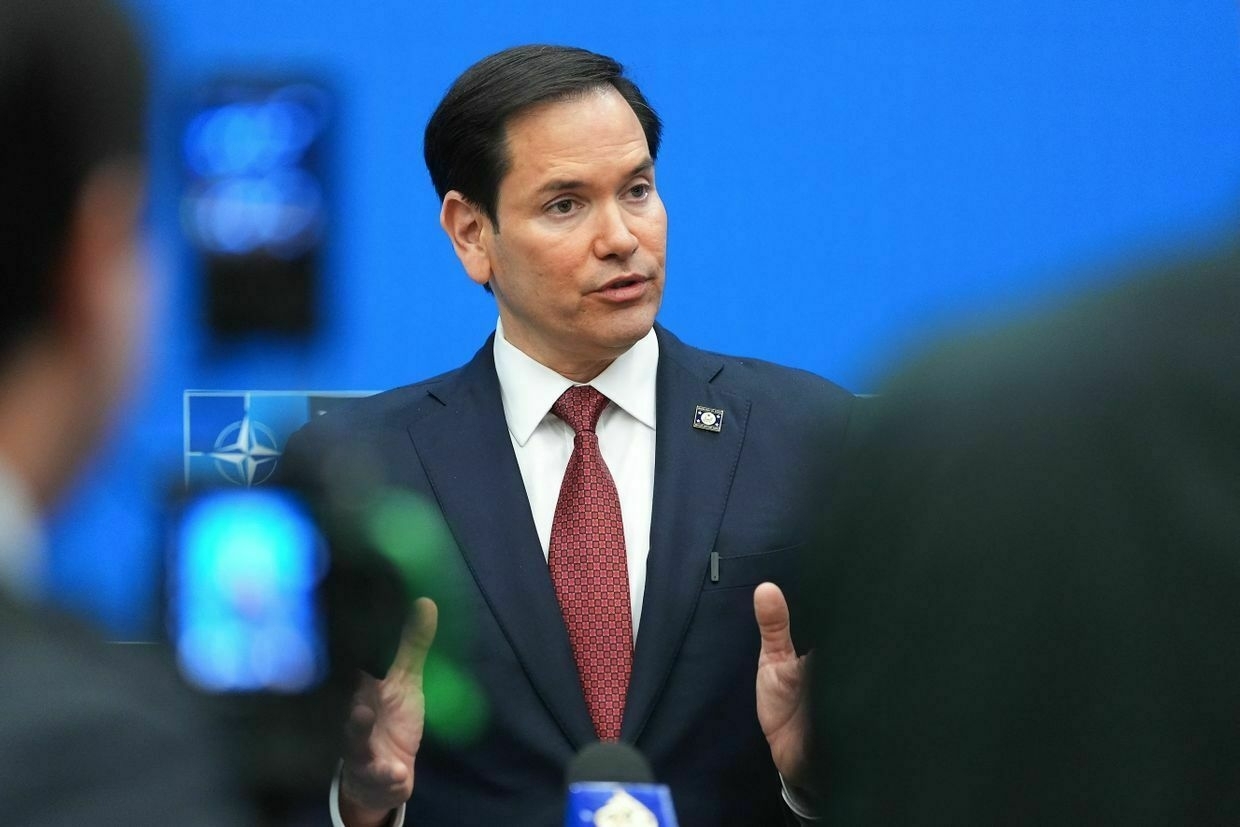
The U.S. will know within weeks whether Russia is serious about a peace deal with Ukraine, Secretary of State Marco Rubio said on April 4, Reuters reported.
“We will know soon enough, in a matter of weeks, not months, whether Russia is serious about peace or not. I hope they are,” Rubio said. He added that if the process drags on unnecessarily, U.S. President Donald Trump would not engage in “endless negotiations about negotiations."
His remarks follow reports that Trump is increasingly frustrated by continued aerial strikes from both Russia and Ukraine despite his mediation efforts.
The Telegraph reported on March 23 that Trump is growing angry over the ongoing attacks, while NBC News said on March 30 that he is “pissed off” at Russian President Vladimir Putin’s fixation on President Volodymyr Zelensky.
“We’re testing to see if the Russians are interested in peace. Their actions — not their words, their actions — will determine whether they’re serious or not, and we intend to find that out sooner rather than later,” Rubio said.
Kyiv had agreed to a full 30-day ceasefire in U.S.-mediated talks in Jeddah on March 11, but Russia rejected it unless it included conditions limiting Ukraine’s military capabilities, such as ending foreign military aid.
Instead, Ukraine, Russia, and the U.S. reached a partial ceasefire covering energy infrastructure and the Black Sea. Two days later, Zelensky accused Russia of striking Kherson’s energy facilities, calling for a response from Washington.
Moscow denied the attack, with Kremlin spokesperson Dmitry Peskov claiming Russia had adhered to the agreement but “reserves the right” to abandon it if Ukraine violates the terms.
The Russian side accused Ukraine of striking the Sudzha gas metering station in Kursk Oblast, a claim Kyiv dismissed as an attempt to justify further attacks.
Russian Foreign Minister Sergey Lavrov said on April 1 that Moscow had sent a list of alleged Ukrainian ceasefire violations to the U.S., the U.N., and OSCE.
Zelensky ordered Defense Minister Rustem Umerov on March 28 to provide Washington with proof of Russian ceasefire violations. The U.S. has not yet responded to either side’s claims.
While Trump has occasionally floated measures such as extra sanctions and tariffs on Russia, he has yet to take concrete steps to pressure Moscow, which continues its offensive operations.
Kremlin denies Putin, Trump to have phone call in coming days“No, there are no plans for the next few days yet. There’s nothing on the schedule yet,” Dmitriy Peskov said.The Kyiv IndependentKateryna Hodunova
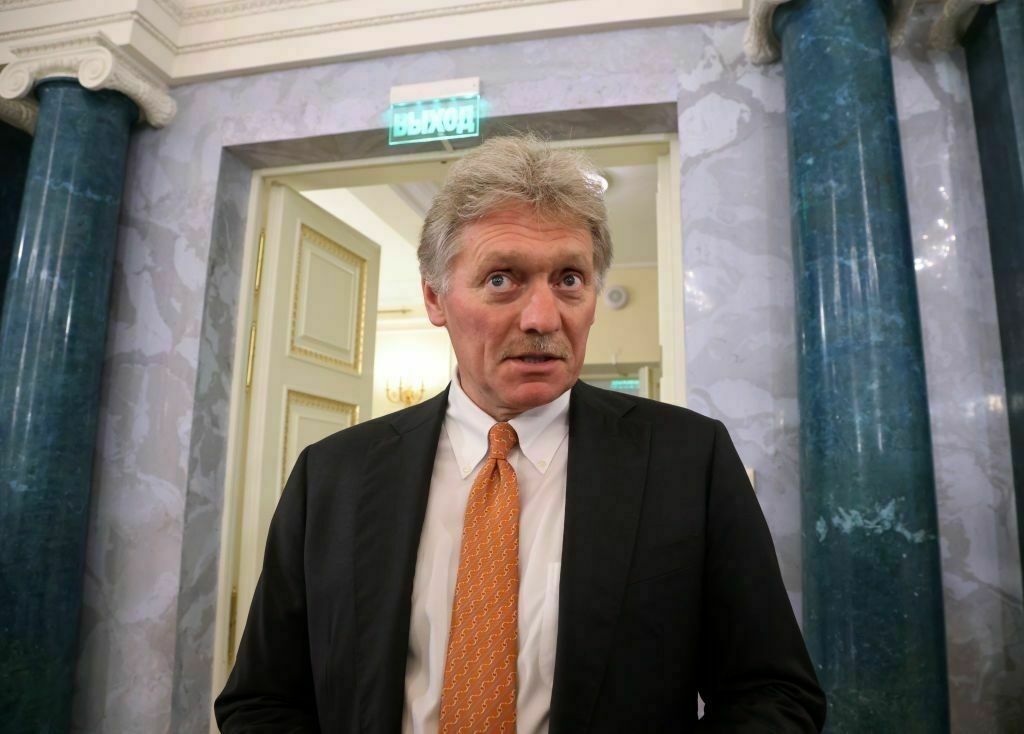
-
Trump to attend NATO summit in The Hague in June, Sikorski says
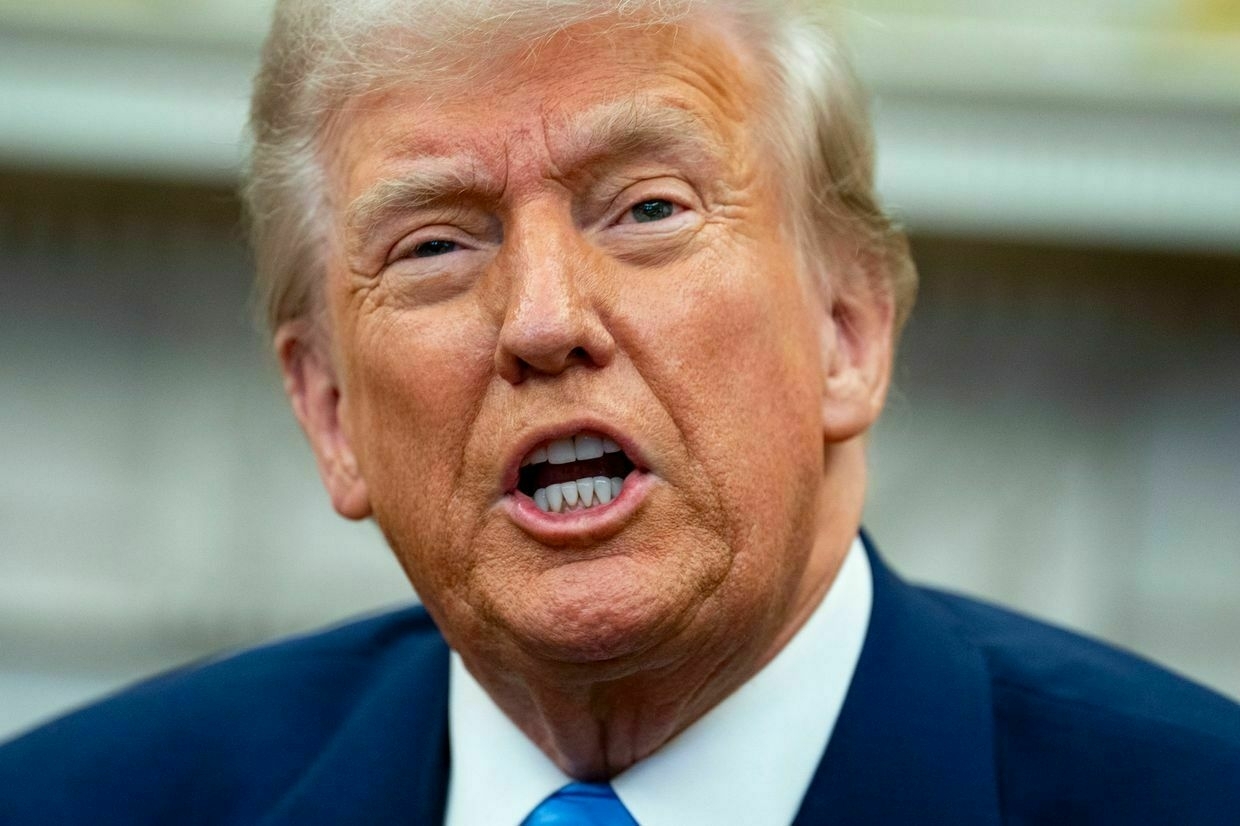
U.S. President Donald Trump will attend the NATO summit in The Hague in June, Polish Foreign Minister Radoslaw Sikorski said on April 4, Reuters reported.
The announcement follows comments from Secretary of State Marco Rubio, who said Trump is committed to supporting NATO and that the U.S. remains an active member of the alliance.
Sikorski echoed Rubio’s statement, adding that Trump remains committed to NATO’s Article 5 on mutual defense and will attend the NATO summit in The Hague from June 24 to 26.
Trump has long been a critic of the U.S.’s NATO partners, saying he would not defend those who fail to meet defense spending targets, directly challenging the alliance’s principle of collective defense.
Trump has accused European countries of not contributing their fair share to the alliance’s defense needs. His administration has also signaled that its strategic focus is shifting from Europe to the Indo-Pacific region.
The Netherlands, which will host the summit, also expects to see President Volodymyr Zelensky in The Hague, Dutch Foreign Minister Caspar Veldkamp told European Pravda on April 4.
Veldkamp said Zelensky will be invited to participate in the summit, but it is too early to discuss the possible outcomes, as negotiations with Russia to establish at least a temporary truce are still ongoing.
“It is too early to say what exactly will happen in The Hague. But I expect President Zelensky to be there,” Veldkamp said.
Ukrainian Foreign Minister Andrii Sybiha said that as of April 4, Ukraine had not yet received an invitation for Zelensky to attend the NATO summit in The Hague.
Every finding is a key: The mission to recover Ukraine’s fallen soldiers (Photos)Editor’s note: This story contains graphic images. War leaves behind more than ruins and destroyed cities — it carves an invisible mark in the form of the missing and the dead. One of the most painful and challenging aspects of war is the fate of fallen soldiers, whose bodies remainThe Kyiv IndependentViacheslav Ratynskyi
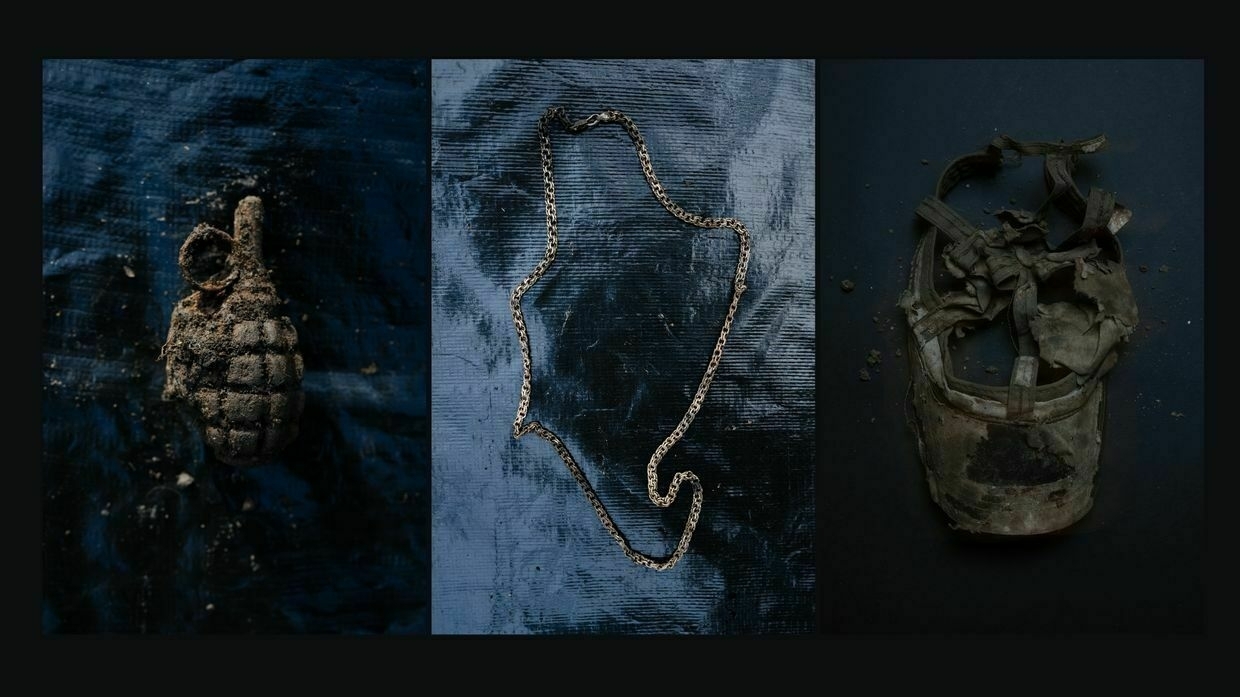
-
Ukraine analyzing minerals deal with US for compliance with constitution, foreign minister says
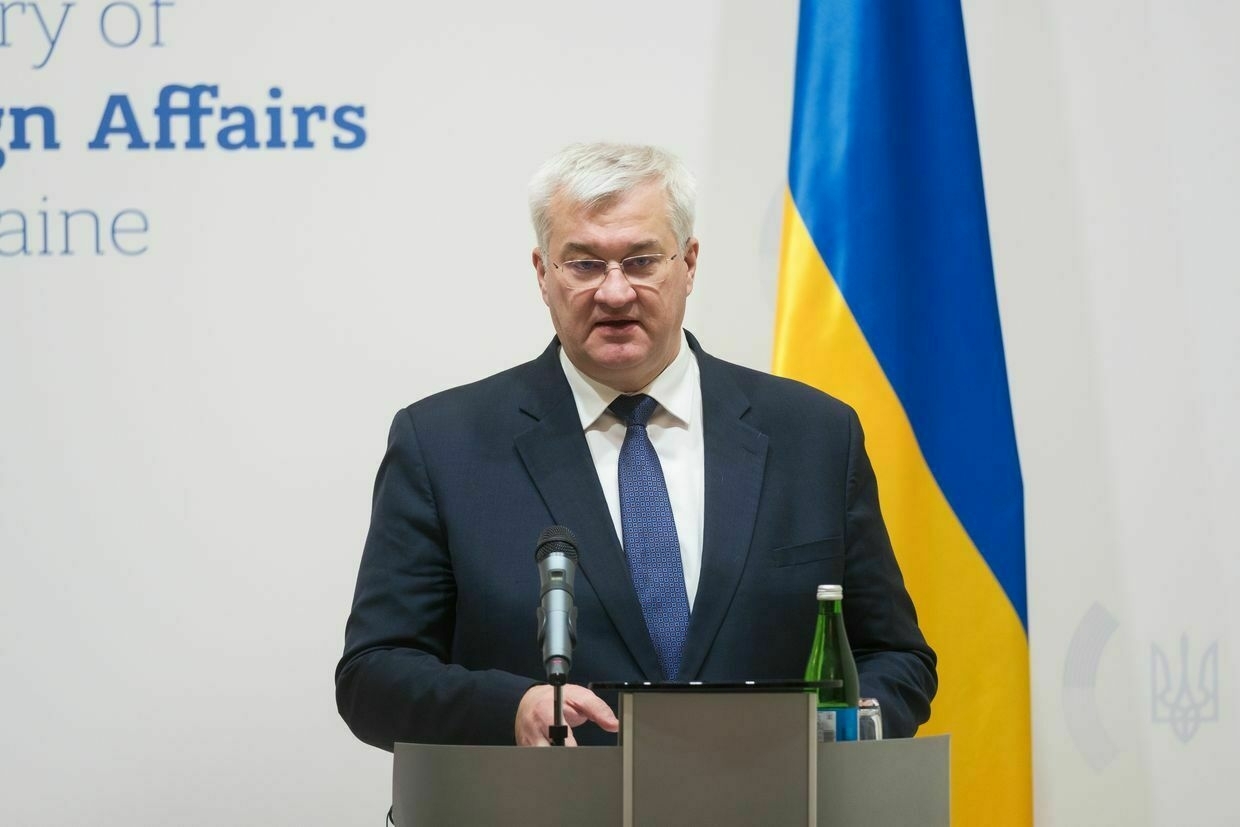
Ukraine is conducting an internal audit regarding the minerals deal with the U.S, analyzing its compliance with the Ukrainian Constitution, Foreign Minister Andrii Sybiha told Suspilne on April 4.
The news comes after Washington and Kyiv reportedly discussed the draft on the expanded minerals agreement proposed by the U.S. at the end of March.
Sybiha said the minerals deal “cannot contradict European integration, we are telling the Americans that."
One of the glaring issues is that the latest version of the deal conflicts with a critical raw materials partnership signed between Brussels and Kyiv in 2021, potentially harming Ukraine’s ambitions to join the EU in the future.
Sybiha also noted that one of the “most famous” law firms will be involved in the analysis of the document, which will work in cooperation with American partners and help Ukraine.
According to the minister, the Ukrainian delegation is expected to travel to the U.S. for further negotiations in the near future. Another round of online talks may take place as early as April 4.
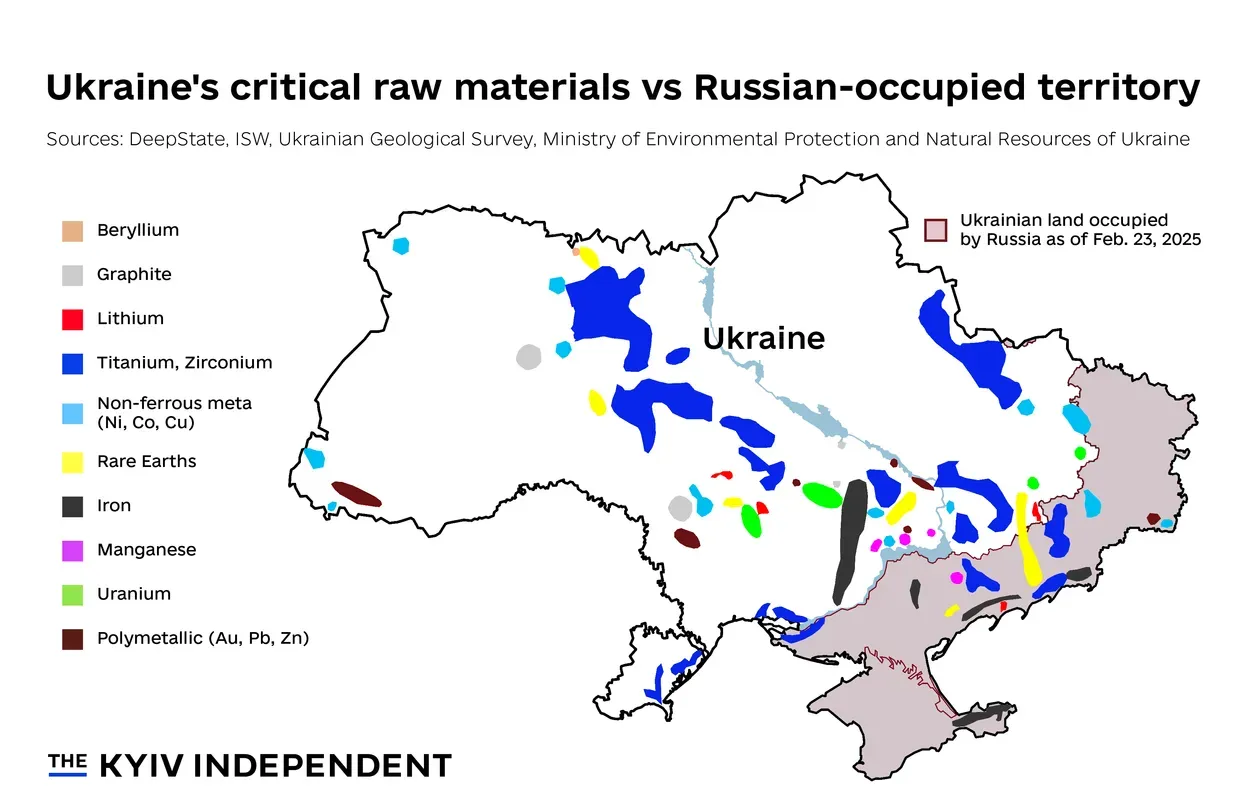
A map showing the location of critical raw materials in Ukraine. (The Kyiv Independent) The latest version of the deal reportedly grants the U.S. unprecedented control over Ukraine’s natural resources through a joint investment.
The Trump administration has touted the minerals deal as an essential part of Ukraine’s path to peace but has failed to offer concrete security guarantees in exchange for broad access to resources.
Ukrainian media also reported that the agreement could contradict Ukraine’s efforts to join the EU due to severe restrictions on the country’s economic sovereignty. President Volodymyr Zelensky said he would not sign a deal endangering Ukraine’s EU accession.
Kyiv and Washington were set to sign a framework version of the agreement on Feb. 28, but the plan fell apart after a heated Oval Office dispute between Zelensky, U.S. President Donald Trump, and Vice President JD Vance.
‘It’s a trap’ — Trump’s US minerals deal threatens Ukraine’s EU membershipThe ongoing saga of the U.S.-Ukraine natural resources deal has already caused seismic ruptures between Kyiv and Washington, temporarily costing Ukraine American military support and crucial intelligence sharing. Yet in the quest to placate U.S. President Donald Trump, and secure his support in the…The Kyiv IndependentDominic Culverwell
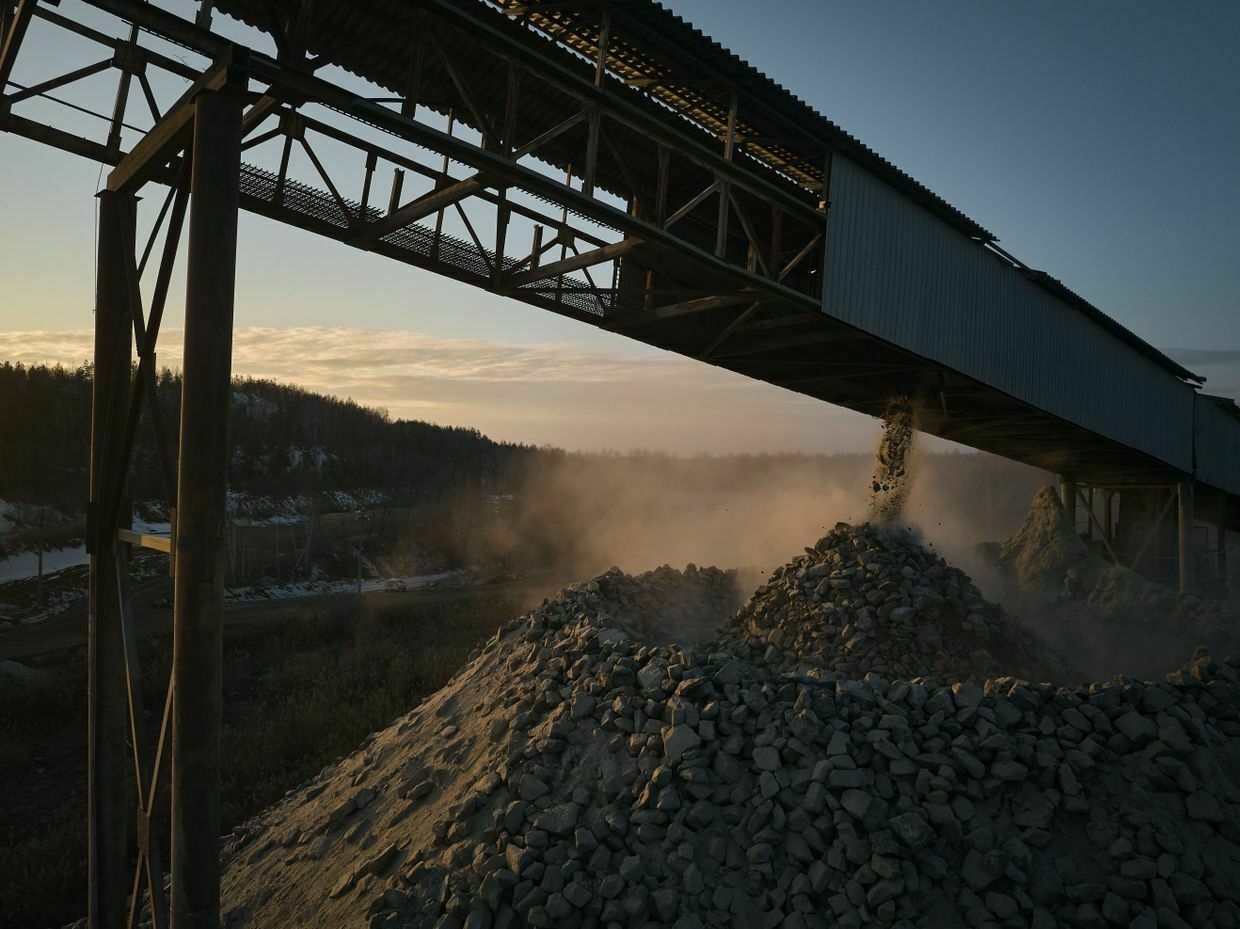
-
Kremlin denies Putin, Trump to have phone call in coming days
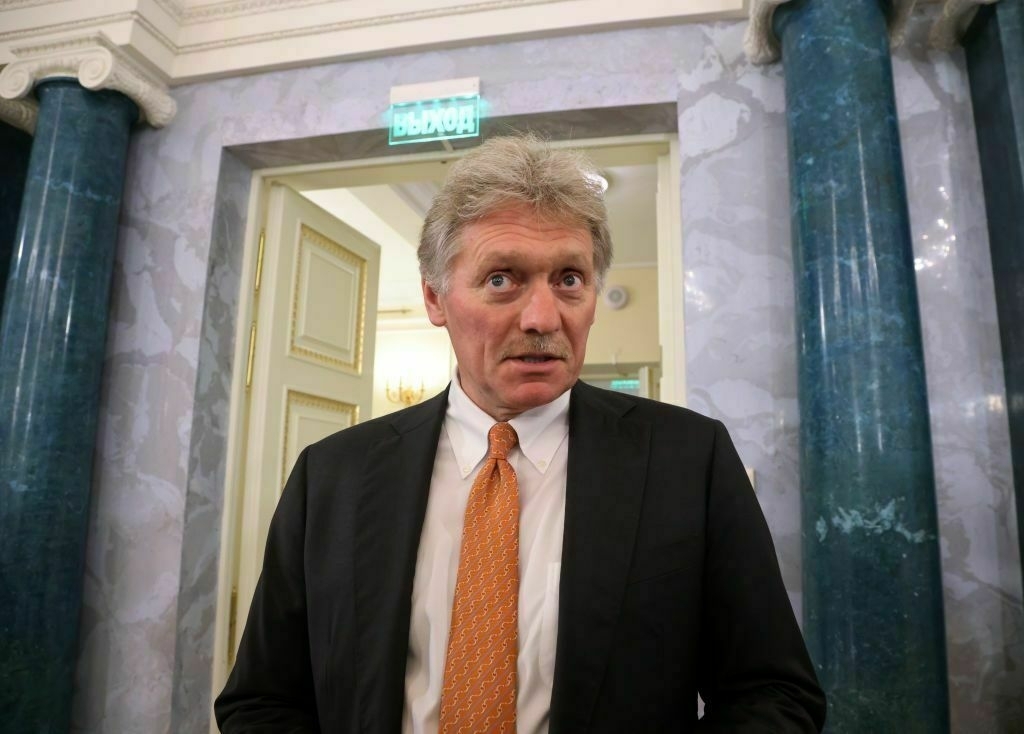
Russian President Vladimir Putin and U.S. President Donald Trump are not scheduled to have a phone conversation in the coming days, Kremlin spokesperson Dmitry Peskov said on April 4, the state news agency TASS reported.
Earlier in the day, Politico had reported that Trump and Putin will hold a call “before or after the weekend.”
“No, there are no plans for the next few days yet. There’s nothing on the schedule yet,” Peskov said.
The denial comes a day after it was reported that Trump’s advisers were insisting a conversation with Putin take place only after Russia agrees to a ceasefire in Ukraine.
Moscow has shown signs it is unwilling to move forward on a peace deal with Ukraine, and Russian authorities have listed maximalist demands in ceasefire negotiations with Ukraine and the U.S.
Ukraine has agreed to a U.S.-proposed full 30-day ceasefire, saying on March 11 that Kyiv is ready if Russia also agrees to the terms. So far, Moscow has refused.
On April 2, U.S. President Donald Trump’s special envoy for Ukraine, Keith Kellogg, said Ukraine and Russia are already approaching a ceasefire despite prior reports that a ceasefire is unlikely in the coming months.
Every finding is a key: The mission to recover Ukraine’s fallen soldiers (Photos)Editor’s note: This story contains graphic images. War leaves behind more than ruins and destroyed cities — it carves an invisible mark in the form of the missing and the dead. One of the most painful and challenging aspects of war is the fate of fallen soldiers, whose bodies remainThe Kyiv IndependentViacheslav Ratynskyi
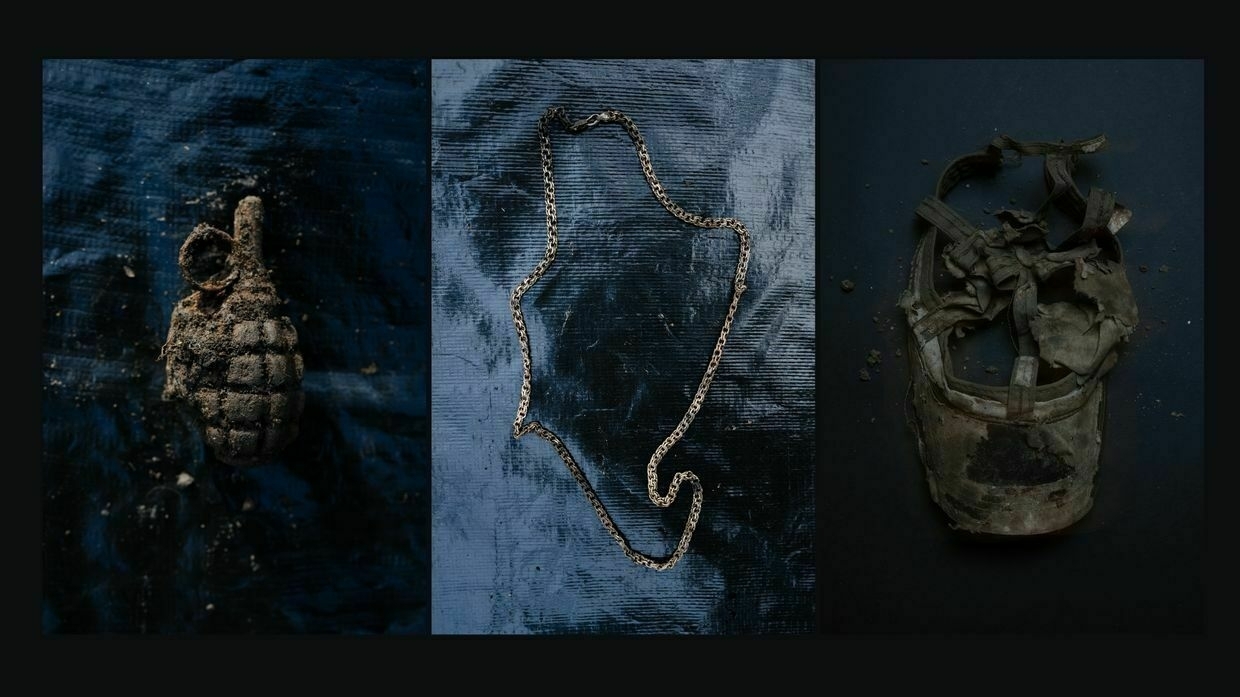
-
Trump waiting for Kirill Dmitriev to report to Putin before taking further Ukraine ceasefire steps, Bloomberg reports
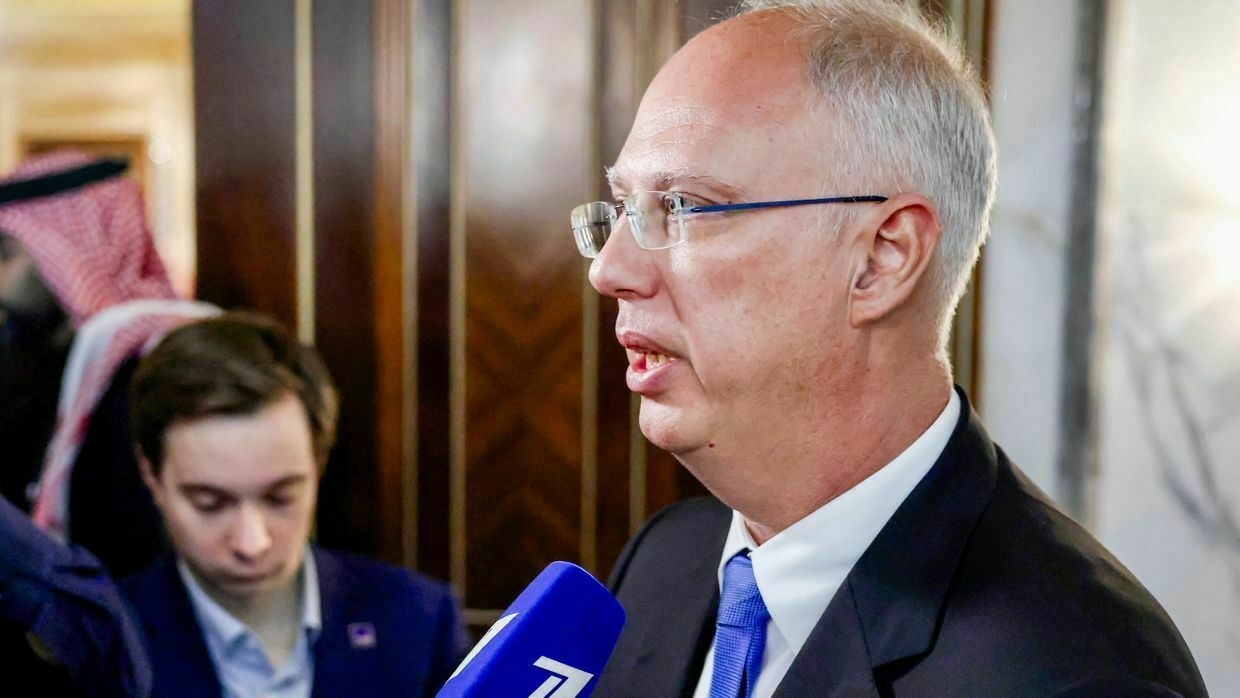
The U.S. is waiting for Russian negotiator Kirill Dmitriev to report to Russian President Vladimir Putin before taking any next steps in peace talks, Bloomberg reported on April 4, citing a person familiar with the discussions.
Dmitriev met with U.S. Special Envoy Steve Witkoff in Washington this week. His visit came as Trump threatened to impose secondary oil tariffs on Russia as he grows frustrated with the stalled talks to end Russia’s war in Ukraine.
Trump also announced a 10% baseline tariff on nearly all imports into the country on April 2. Russia and Belarus were not included on the list as the White House says that any “meaningful trade” with these countries is non-existent due to existing sanctions.
U.S. officials are growing increasingly frustrated with Moscow’s slowness in negotiations, Bloomberg reported.
What appeared to be a breakthrough last week on a partial truce in the Black Sea quickly evaporated after Russian officials said it was contingent on sanctions relief. This claim contradicted a U.S. statement that outlined the parameters of the agreement.
Dmitriev, who heads the state-controlled Russian Direct Investment Fund, met with U.S. officials in Washington on behalf of Putin on April 2 and 3.
Following his visit, Dmitriev praised the administration under Trump for its constructive and respectful dialogue with Russia and said the two nations plan to restore and deepen their ties, including further economic cooperation.
Dmitriev played a role in backchannel diplomacy between Moscow and Trump when he was first elected in 2016.
The official was then appointed by Putin as his representative for foreign economic relations and was involved in early U.S.-Russian negotiations in Riyadh in February.
How Trump’s tariffs will impact UkraineU.S. President Donald Trump on April 2 unleashed what he has dubbed “Liberation Day,” imposing tariffs on nearly every country in the world — including war-torn Ukraine. Kyiv got off lighter than most with only a 10% tariff on all Ukrainian goods, compared to 20% on the E.U., andThe Kyiv IndependentDominic Culverwell
